Black Journey
- View history
Black Journey is a group song by Fling Posse . It was released on March 24, 2021, as part of the Fling Posse VS MAD TRIGGER CREW album.
- 1 Track Info
- 2 Game Info
- 7 Navigation

Track Info [ ]
- Lyrics : Tanaka
- Composition : Tanaka & Kenkaiyoshi
- Arrangement : Kenkaiyoshi
- Length : 4:24
- Tempo : 132 BPM
Game Info [ ]
- Length : 2:13 (Part A) / 2:20 (Part B)
- Attribute : DIAMOND
- Part A : 232 (EASY) / 338 (NORMAL) / 545 (HARD) / 707 (EXPERT)
- Part B : 221 (EASY) / 369 (NORMAL) / 645 (HARD) / 874 (EXPERT)

---( Ramuda Amemura )--- My shadow is still smiling I wonder who my life is for, Only emptiness, nowhere to go, these feelings If they’d get crunched like candy Even if I wish that upon a star… It won’t change anything For myself? ---( Dice Arisugawa )--- For who? ---( Gentaro Yumeno )--- For that day? ---( Dice Arisugawa )--- For tomorrow? ---( Ramuda Amemura )--- For me? ---( Dice Arisugawa )--- For who? ---( Gentaro Yumeno )--- For that day? ---( Fling Posse )--- That’s right, this journey is for us ---( Dice Arisugawa )--- The pleasure of putting one’s life on the line, a bugging brain The calmness residing on the flipside of enthusiasm My life, it’s day trading Simply an intermediary, a daydreamer For some reason I got more dices to throw I’ll survive with these guys sitting next to me The last train started moving Don’t you let go of this ticket ---( Gentaro Yumeno )--- I let my thoughts run on the night of the end If I turn into dust, I guess at least these lyrics will be what’s left This is a coordination that draws endless background colors It has been a long, long journey, including also pain and suffering I await for the time I can smile with you two ---( Fling Posse )--- Into our black, black journey, perhaps the last one A journey to hold onto our lives ---( Dice Arisugawa )--- Jack the line!! No need to justify “I wanna” is enough, no matter where the path leads ---( Gentaro Yumeno )--- A scenery only for us, even black storms Remembering them now, they’re a precious memory ---( Fling Posse )--- This is not for anyone else It belongs to our own mind, all night ---( Dice Arisugawa )--- The accumulated rhymes, the repeated fights Only those take us along with them ---( Gentaro Yumeno & Dice Arisugawa )--- Into the unknown, and beyond, beyond, beyond, beyond ---( Ramuda Amemura )--- “Why is it only me?” I’m tired of asking such stupid questions The world should always be a fun place Hey lady, you have free time, right? It’s simple, let’s slip out real quick and bloom Don’t wanna see you tomorrow though So I’ll spit out a “bye-bye”! ---( Dice Arisugawa )--- You’re not acting like yourself? You can’t win like that I think you know, but his journey definitely won’t be easy (It won’t be easy) You’re not yourself? Like I care, I only know you! We gonna be dirty, so all we gotta do is just go forward This way, straight ahead ---( Gentaro Yumeno )--- The undulating water, the flowing stars, the eclipsing moon There are times when the night is envious of it all, but you should just dance You say you’re connected to shackles only you can see But nights turn into days even if they don’t want to And the water that flows will sparkle, ever so softly ---( Fling Posse )--- Into our black, black journey, it is our first So our hearts are all worked up ---( Dice Arisugawa )--- Jack the line!! No need to justify “I wanna” is enough, no matter where the path leads ---( Gentaro Yumeno )--- A scenery only for us, even black storms Remembering them now, they’re a precious memory ---( Fling Posse )--- You’ll surely find an answer If you look deep inside yourself ---( Dice Arisugawa )--- The accumulated rhymes, the repeated fights Only those take us along with them ---( Gentaro Yumeno & Dice Arisugawa )--- Into the unknown, and beyond, beyond, beyond, beyond ---( Ramuda Amemura )--- A feeling I didn’t know is filling my heart You two were smiling next to me as I was about to lose myself Now I only want to continue this journey ---( Fling Posse )--- Into our black, black journey, perhaps the last one A journey to hold onto our lives ---( Dice Arisugawa )--- Jack the line!! No need to justify “I wanna” is enough, no matter where the path leads ---( Gentaro Yumeno )--- A scenery only for us, even black storms Remembering them now, they’re a precious memory ---( Fling Posse )--- This is not for anyone else It belongs to our own mind, all night ---( Dice Arisugawa )--- The accumulated rhymes, the repeated fights Only those take us along with them ---( Fling Posse )--- Into the unknown, and beyond, beyond, beyond, beyond
---( Ramuda Amemura )--- Ore no kage ga mata waratte iru Dare no tame no jinsei darou, Munashisa dake Ikiba no nai Kono omoi wo Ame mitai ni kami kudaite shimaetara Nante hoshi ni negatte mo... Kawari wa shinai no ni Ore no tame? ---( Dice Arisugawa )--- Dare no tame? ---( Gentaro Yumeno )--- Ano hi no tame? ---( Dice Arisugawa )--- Ashita no tame? ---( Ramuda Amemura )--- Boku no tame? ---( Dice Arisugawa )--- Dare no tame? ---( Gentaro Yumeno )--- Ano hi no tame? ---( Fling Posse )--- Sou sa kono tabi wa orera no tame ni ---( Dice Arisugawa )--- Inochi kakeru koto no kaikan bagu cchimatta nou Nekkyou no ura ni sumau reisei My life deitoreedingu Simply baikai Daydreamer Nazeka kizukeba fueta daisu Tonari ni suwatteru orera sabaibu Saishuu ressha ugoki dashita Kono chiketto tabanasun janee zo ---( Gentaro Yumeno )--- Owari no toki ni omoi haseru yoru Chiri to kashite mo kashi wa nokoru darou Kore wa mugen no keshiki kakeru zahyou Nagai nagai tabi ga itami no kurushimi mo hikkurumete Kimi tachi to warai aeru Toki wo matteru ---( Fling Posse )--- Into our Black, black Journey Saigo darou inochi tsukami ni idomu tabi ---( Dice Arisugawa )--- Jack the line!! Hitsuyou nai Justify "I wanna" dake de kamawanai tabiji ---( Gentaro Yumeno )--- Warera dake no keshiki makkuro na arashi mo Ima omoeba ito oshii Memory ---( Fling Posse )--- Hoka no dare no tame demo nai Belong to our own mind, all night ---( Dice Arisugawa )--- Tsumikasaneta Rhyme kurikaeshita Fight Sore dake ga ore tachi wo tsurete iku ---( Gentaro Yumeno & Dice Arisugawa )--- Michi mitou e motto saki e Saki e saki e saki e ---( Ramuda Amemura )--- Boku dake nande? Nante Tsumaranai toi ni wa akita nda Sekai wa itsumo omoshiroi hazudamon ne Onee san hima janai? Kantan na hanashi setsuna ni nigete hana hiraite Ashita no kao wa mitakunai na Haki sutete sayonara! ---( Dice Arisugawa )--- Omae rashikunai na? Sonna me ja kateru hazu ga nai ka Wakaru darou, tashika ni kono tabi wa raku janai sa ---( Gentaro Yumeno )--- (Raku janai na) ---( Dice Arisugawa )--- Omae ga omae janai? Shiranee Ore wa omae shika shiranee We gonna be dirty dakara mae ni susumu dake This way massugu ---( Gentaro Yumeno )--- Namiutsu mizu nagareteku hoshi Kaketeku tsuki sono subete ni Jitto shite shimau yoru ga atte odoreba iitte Jibun dake ga dare ni mo mienai kusari ni tsunagareteru Dakedo iya demo yoru wa akeru Nagareta mizu ga hikaru Sotto hikaru ---( Fling Posse )--- Into our Black, black Journey Saisho darou konna kokoro takaburu no wa ---( Dice Arisugawa )--- Jack the line!! Hitsuyou nai Justify "I wanna" dake de kamawanai tabiji ---( Gentaro Yumeno )--- Warera dake no keshiki makkuro na arashi mo Ima omoeba ito oshii Memory ---( Fling Posse )--- Omae jishin wo mitsumereba kitto kotae ga aru ---( Dice Arisugawa )--- Tsumikasaneta Rhyme kurikaeshita Fight Sore dake ga ore tachi wo tsurete iku ---( Gentaro Yumeno & Dice Arisugawa )--- Michi mitou e motto saki e Saki e saki e saki e ---( Ramuda Amemura )--- Shiranakatta kanjou ga Kono mune wo mitashite ite Tonari ni warau omaera ga Ore wo ore janaku sasete ita Ima wa tada kono tabi wo motto Tsuzuketai dake ---( Fling Posse )--- Into our Black, black Journey Saigo darou inochi tsukami ni idomu tabi ---( Dice Arisugawa )--- Jack the line!! Hitsuyou nai Justify "I wanna" dake de kamawanai tabiji ---( Gentaro Yumeno )--- Warera dake no keshiki makkuro na arashi mo Ima omoeba ito oshii Memory ---( Fling Posse )--- Hoka no dare no tame demo nai Belong to our own mind, all night ---( Dice Arisugawa )--- Tsumikasaneta Rhyme kurikaeshita Fight Sore dake ga ore tachi wo tsurete iku ---( Fling Posse )--- Michi mitou e motto saki e Saki e saki e saki e
俺の影がまた笑っている 誰のための人生だろう、 虚しさだけ 行き場のない この思いを 飴みたいに噛み砕いてしまえたら なんて星に願っても・・・ 変わりはしないのに 俺のため? 誰のため? あの日のため? 明日のため? ボクのため? 誰のため? あの日のため? そうさこの旅は俺らのために 命賭ける ことの快感 バグっちまった脳 熱狂の裏に住まう冷静 My life デイトレーディング Simply 媒介 Daydreamer 何故か気づけば 増えたダイス 隣に座ってる 俺らサバイフ 最終列車 動き出した このチケット手放すんじゃねえぞ 終わりの時に思い馳せる夜 塵と化しても華詩(かし)は残るだろう これは無限の景色 描ける座標 長い長い旅が 痛みも苦しみも ひっくるめて 君たちと笑いあえる 時を待ってる Into our Black, black Journey 最後だろう 命掴みにいどむ旅 Jack the line!! 必要ないJustify “I wanna” だけで構わない 旅路 我らだけの景色 まっくろな嵐も 今思えば愛おしいMemory 他の誰のためでもない Belong to our own mind, all night 積み重ねたRhyme 繰り返したFight それだけが俺たちを連れて行く 未知 未踏へ もっと先へ 先へ 先へ 先へ ボクだけなんで? なんて つまらない問いには飽きたんだ 世界はいつも面白いはすだもんね オネーさん暇じゃない? 簡単な話 刹那に逃げて 花開いて 明日の顔は見たくないな 吐き捨てて さよなら! お前らしくないな? そんな目じゃ勝てるはずがないか わかるだろ、たしかにこの旅は楽じゃないさ (楽じゃないな) お前がお前じゃない?知らねえ 俺はお前しか知らねえ We gonna be dirty だから前に進むだけ This way まっすぐ 波打つ水 流れてく星 欠けてく月 そのすべてに 嫉妬してしまう夜があって 踊ればいいって 自分だけが誰にも見えない鎖に 繋がれてる だけど嫌でも夜は明ける 流れた水が光る そっと光る Into our Black, black Journey 最初だろう こんな心昂ぶるのは Jack the line!! 必要ないJustify “I wanna” だけで構わない 旅路 我らだけの景色 まっくろな嵐も 今思えば愛おしいMemory お前自身をみつめれば きっと答えがある 積み重ねたRhyme 繰り返したFight それだけが俺たちを連れて行く 未知 未踏へ もっと先へ 先へ 先へ 先へ 知らなかった感情が この胸を満たしていて 隣に笑うお前らが 俺を俺じゃなくさせていた 今はただ この旅をもっと、 つづけたいだけ Into our Black, black Journey 最後だろう 命掴みにいどむ旅 Jack the line!! 必要ないJustify “I wanna” だけで構わない 旅路 我らだけの景色 まっくろな嵐も 今思えば愛おしいMemory 他の誰のためでもない Belong to our own mind, all night 積み重ねたRhyme 繰り返したFight それだけが俺たちを連れて行く 未知 未踏へ もっと先へ 先へ 先へ 先へ
Credits [ ]
- Translation by Hipumailations .
Navigation [ ]
- 1 Samatoki Aohitsugi
- 2 Doppo Kannonzaka
- 3 Ichiro Yamada
Lyrical Nonsense
Fling Posse Black Journey 歌詞
Home » 歌手リスト » Fling Posse » Black Journey 歌詞
Black Journey 歌詞
俺の影がまた笑っている 誰のための人生だろう、虚しさだけ 行き場のないこの思いを 飴みたいに噛み砕いてしまえたら なんて 星に願っても… 変わりはしないのに
俺のため? 誰のため? あの日のため? 明日のため? ボクのため? 誰のため? あの日のため? そうさこの旅は俺らのために
命賭ける ことの快感 バグっちまった脳 熱狂の裏に住まう冷静 My life デイトレーディング Simply 媒介 Daydreamer 何故か気づけば 増えたダイス 隣に座ってる 俺らサバイブ 最終列車 動き出した このチケット手放すんじゃねえぞ
終わりの時に思い馳せる夜 塵と化しても華詩(かし)は残るだろう これは無限の景色 描ける座標 長い長い旅が 痛みも苦しみも ひっくるめて 君たちと笑いあえる 時を待ってる
Into our Black, black Journey 最後だろう 命掴みにいどむ旅 Jack the line!! 必要ない Justify “I wanna”だけで構わない旅路 我らだけの景色 まっくろな嵐も 今思えば愛おしい Memory 他の誰のためでもない Belong to our own mind, all night 積み重ねた Rhyme 繰り返した Fight それだけが俺たちを連れて行く 未知 未踏へ もっと先へ 先へ 先へ 先へ
ボクだけなんで? なんて つまらない問いには飽きたんだ 世界はいつも面白いはずだもんね オネーさん暇じゃない? 簡単な話 刹那に逃げて 花開いて 明日の顔は見たくないな 吐き捨てて さよなら!
お前らしくないな? そんな目じゃ勝てるはずがないが わかるだろ、たしかにこの旅は楽じゃないさ (楽じゃないな) お前がお前じゃない?知らねえ 俺はお前しか知らねえ We gonna be dirty だから前に進むだけ This way まっすぐ
波打つ水 流れてく星 欠けてく月 そのすべてに 嫉妬してしまう夜があって 踊ればいいって 自分だけが誰にも見えない鎖に繋がれてる だけど嫌でも夜は明ける 流れた水が光る そっと光る
Into our Black, black Journey 最初だろう こんな心昂ぶるのは Jack the line!! 必要ない Justify “I wanna”だけで構わない旅路 我らだけの景色 まっくろな嵐も 今思えば愛おしい Memory お前自身を見つめれば きっと答えがある 積み重ねた Rhyme 繰り返した Fight それだけが俺たちを連れて行く 未知 未踏へ もっと先へ 先へ 先へ 先へ
知らなかった感情が この胸を満たしていて 隣に笑うお前らが 俺を俺じゃなくさせていた 今はただ この旅をもっと、つづけたいだけ
Fling Posse『Black Journey』の Official Lyric Video (Short ver.)
- Official Lyric Video (Short ver.)
感想を聞かせて下さい: キャンセル
Related fling posse『black journey』の関連歌詞.

- HOME 【歌詞リリ】ホーム
- FAVORITES マイお気に入りリスト
- ARTISTS 歌手リスト
- SERIES 関連作リスト
- ABOUT 【歌詞リリ】について

20 essential songs that journey through Black experience
Posted: February 5, 2024 | Last updated: February 5, 2024
![20 Essential songs that journey through Black experience <p>African-Americans have made incalculable contributions to music. In the words of Quincy Jones, “I only hope that one day, America will recognize what the rest of the world already has known, that our indigenous music—gospel, blues, jazz, and R&B—is the heart and soul of all popular music; and that we cannot afford to let this legacy slip into obscurity, I’m telling you.” To the styles of music he names, one could add soul, funk, disco, house, hip-hop, rock and roll, and many others. The history of Black people is embedded in their music. As <a href="https://www.facebook.com/standup/videos/roy-wood-jr-explains-why-black-people-havent-written-many-patriotic-songsget-mor/1650715178277564/?__so__=permalink&__rv__=related_videos" class="atom_link atom_valid" rel="noreferrer noopener">comedian Roy Wood Jr. put it</a>, “You wanna know what Black folks feelin’? Just listen to their music. Our music [will] tell you everything that’s going on in the Black psyche.” Click on the next slide to begin your journey through Black music and history.</p>](https://img-s-msn-com.akamaized.net/tenant/amp/entityid/BB1hO8mI.img)
African-Americans have made incalculable contributions to music. In the words of Quincy Jones, “I only hope that one day, America will recognize what the rest of the world already has known, that our indigenous music—gospel, blues, jazz, and R&B—is the heart and soul of all popular music; and that we cannot afford to let this legacy slip into obscurity, I’m telling you.” To the styles of music he names, one could add soul, funk, disco, house, hip-hop, rock and roll, and many others. The history of Black people is embedded in their music. As comedian Roy Wood Jr. put it , “You wanna know what Black folks feelin’? Just listen to their music. Our music [will] tell you everything that’s going on in the Black psyche.” Click on the next slide to begin your journey through Black music and history.
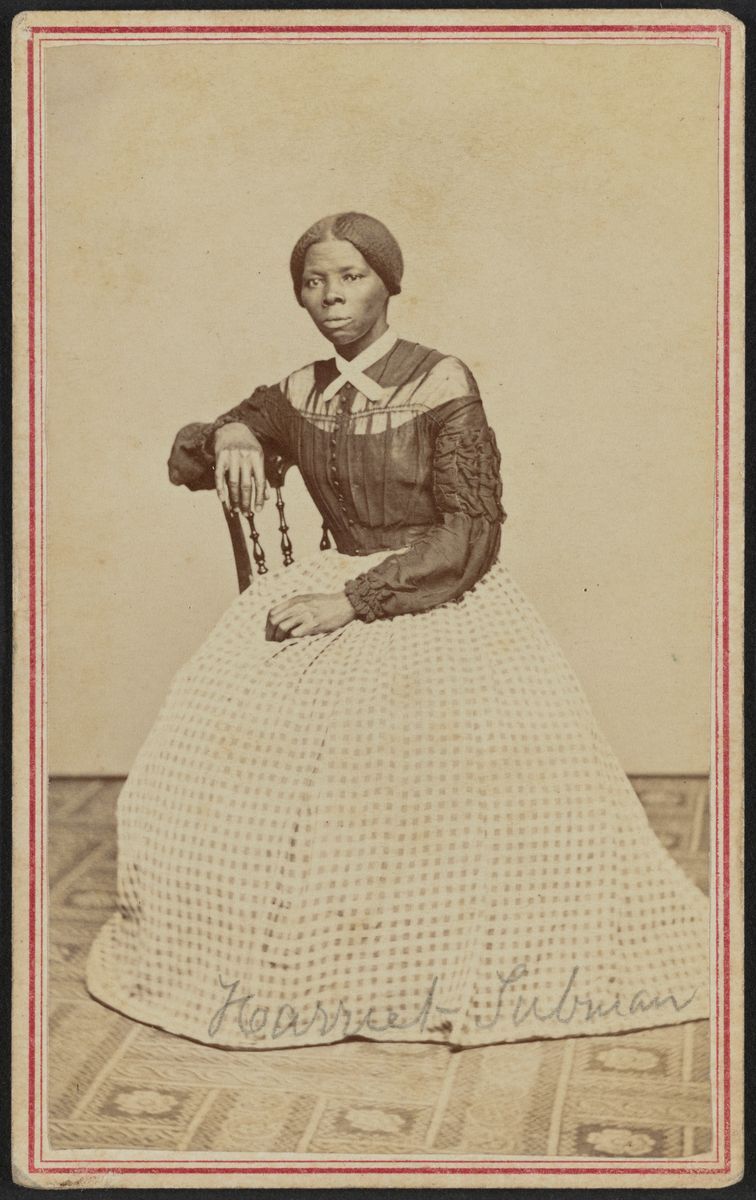
“Wade in the Water” – Songwriter and date unknown
Singing was a tradition brought from Africa by the first enslaved African-Americans. The author of the spiritual “Wade in the Water” is unknown. The song’s lyrics refer to the Israelites’ escape from bondage in Egypt as described in the Old Testament: “Who are those children all dressed in red? / God’s gonna trouble the water / Must be the ones that Moses led.” Harriet Tubman, an American abolitionist and activist, went by the nickname of Moses and led many enslaved people to freedom via the Underground Railroad. She used the song “Wade in the Water” as a code to tell people to get off dry land and into the water so that the dogs used by slave catchers wouldn’t be able to sniff their trail.
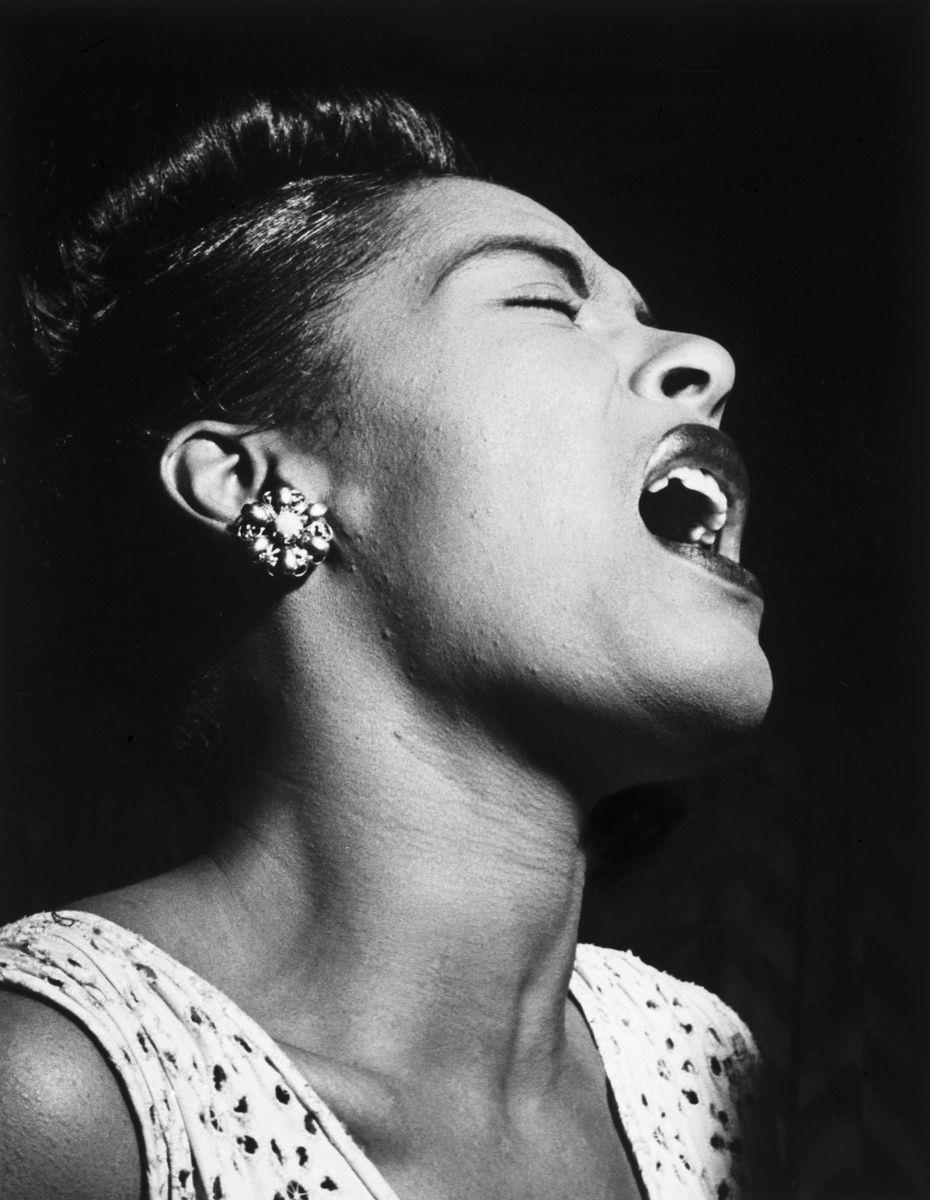
“Strange Fruit” – Billie Holiday (1939)
First written as a poem by a Jewish teacher and songwriter from the Bronx called Abel Meeropol, “Strange Fruit” was popularized by Billie Holiday in 1939. Here are some of the song’s haunting lyrics: “Southern trees bear strange fruit / Blood on the leaves and blood at the root / Black bodies swinging in the southern breeze / Strange fruit hanging from the poplar trees.” The song is a protest against lynching, a practice in which a person is executed by a mob without a legal trial. Lynchings were carried out by white Americans to terrorize and control Black people. Billie Holiday sang “Strange Fruit” live for the next 20 years until her death at the age of 44 .
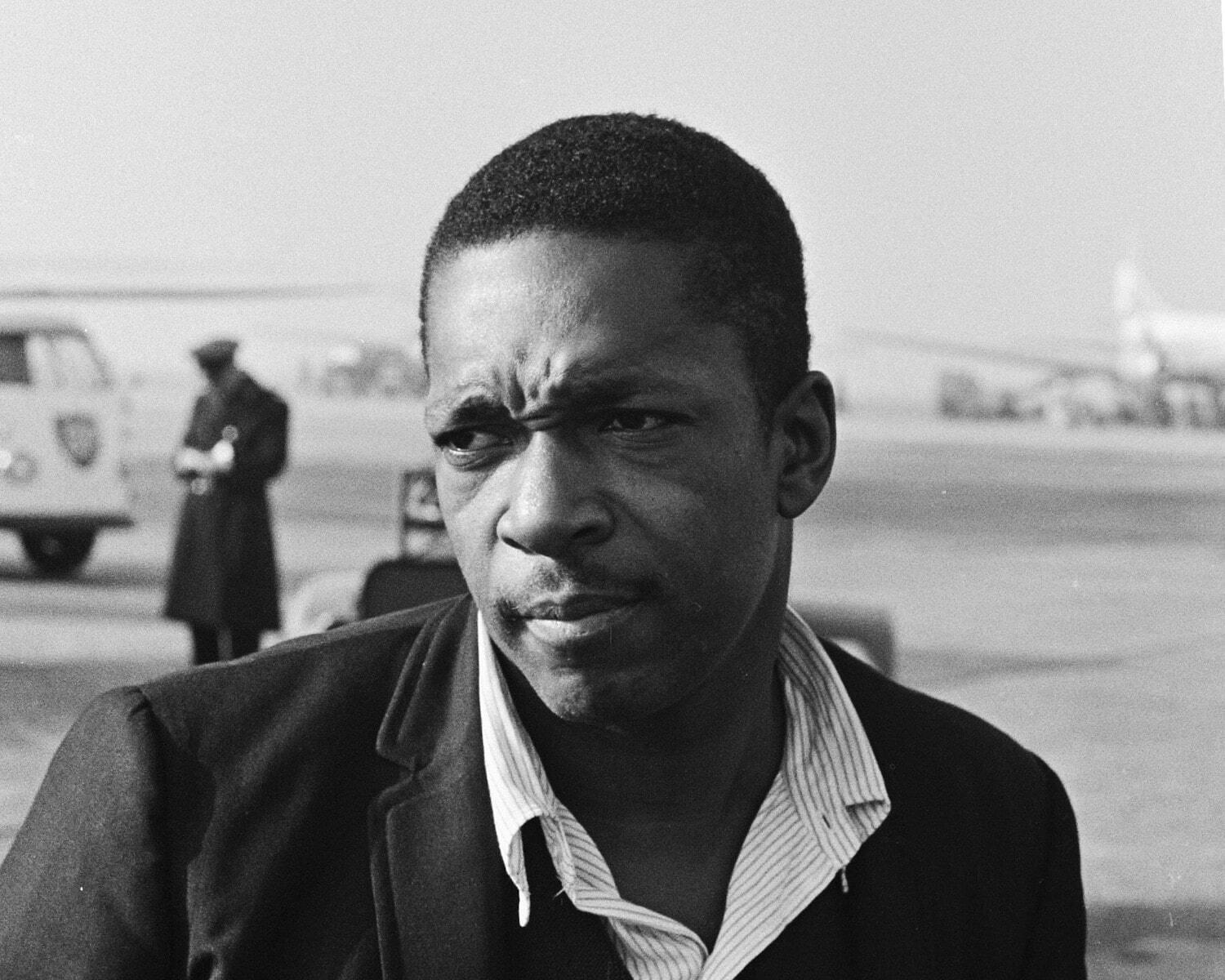
“Alabama” – John Coltrane (1963)
On September 15, 1963, a white man, later identified as a KKK terrorist, placed a box containing sticks of dynamite under the steps of the 16th Street Baptist Church in Birmingham, Alabama. Four African-American girls were killed: Denise McNair, 11, and Addie Mae Collins, Cynthia Wesley, and Carole Robertson, all 14. Many other churchgoers were injured. In November of that same year, jazz saxophonist John Coltrane recorded the sorrowful “Alabama” as an elegy about the tragic event. The solemn, deeply moving piece needs no words.
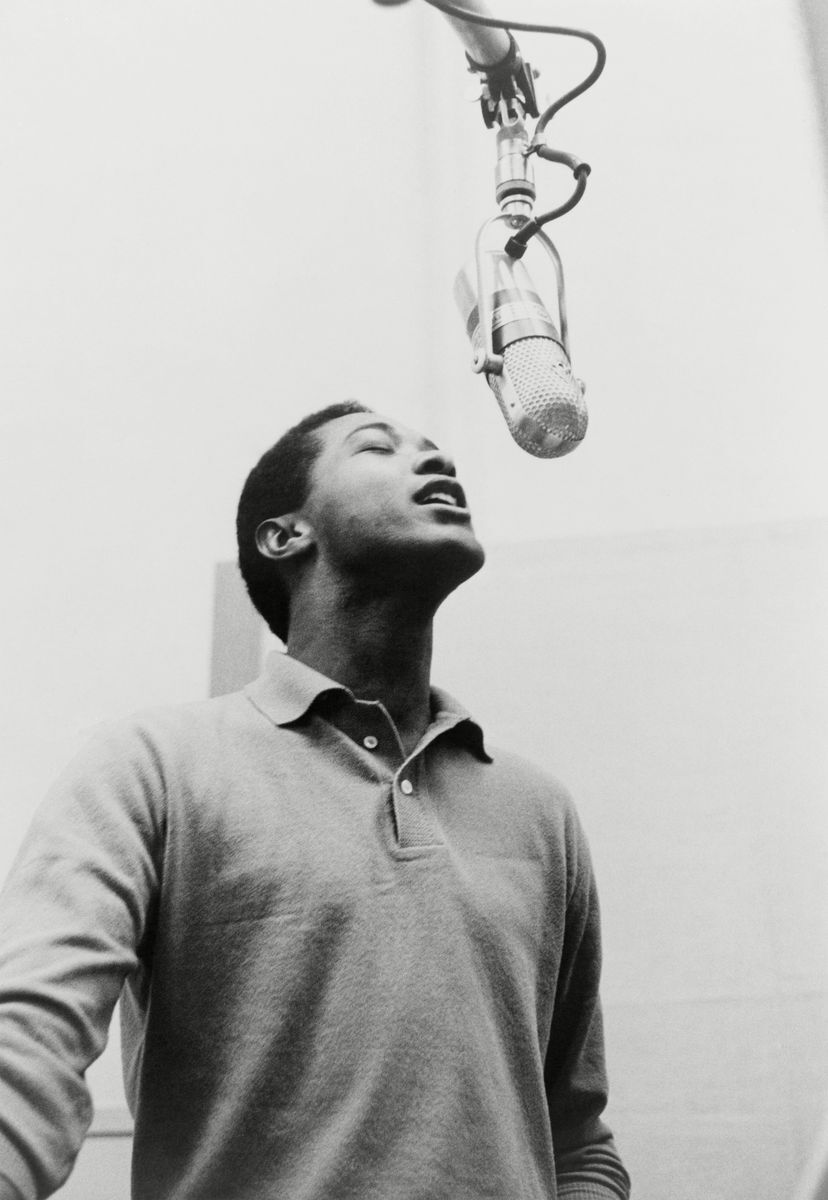
“A Change Is Gonna Come” – Sam Cooke (1964)
When Sam Cooke first heard Bob Dylan’s 1963 protest song “Blowin’ in the Wind,” he was inspired to write his own song about the battle for civil rights , “A Change Is Gonna Come.” Although the two songs sound totally different, they share a similar message. Cooke’s magnificent tenor is backed by a lush orchestral arrangement with soaring lines that recall film music and show tunes. But the lyrics strike a graver tone: “Then I go to my brother / And I say brother help me please / But he winds up knockin’ me / Back down on my knees.” Over 50 years after they were written, we’re still fighting for the change he sang of.
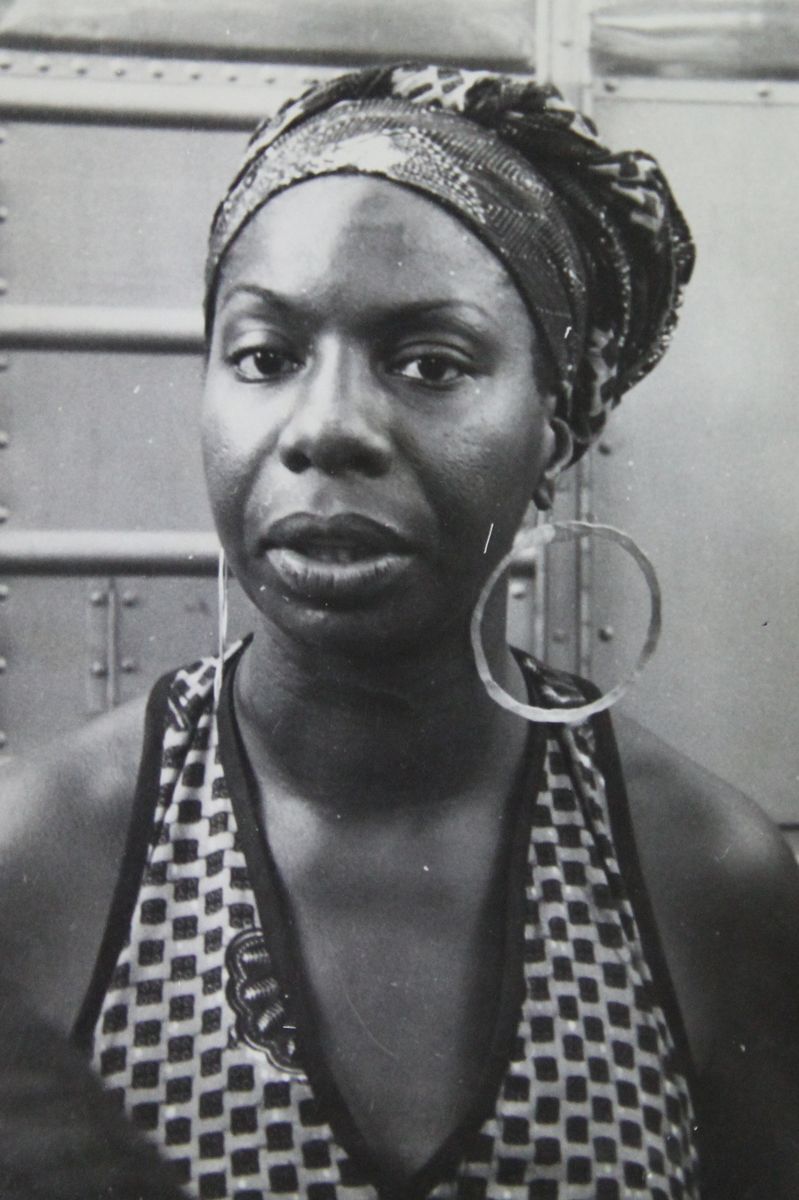
“Mississippi Goddam” – Nina Simone (1964)
You can feel the frustration and anger in Nina Simone’s voice in “Mississippi Goddam”: “Picket lines / School boycotts / They try to say it’s a communist plot / All I want is equality / For my sister my brother my people and me.” Simone wrote the song after the murder of civil rights activist Medgar Evers in Mississippi and the bombing of the 16th Street Baptist Church in Alabama. Set to a bouncy beat, “Mississippi Goddam” is a fierce indictment of those who dare tell Black people to slow down their fight for equal rights (“Do things gradually / ‘Do it slow’ / But bring more tragedy”). Simone was such a gifted songwriter that she was able to confront, provoke, and entertain her audience in a single song.
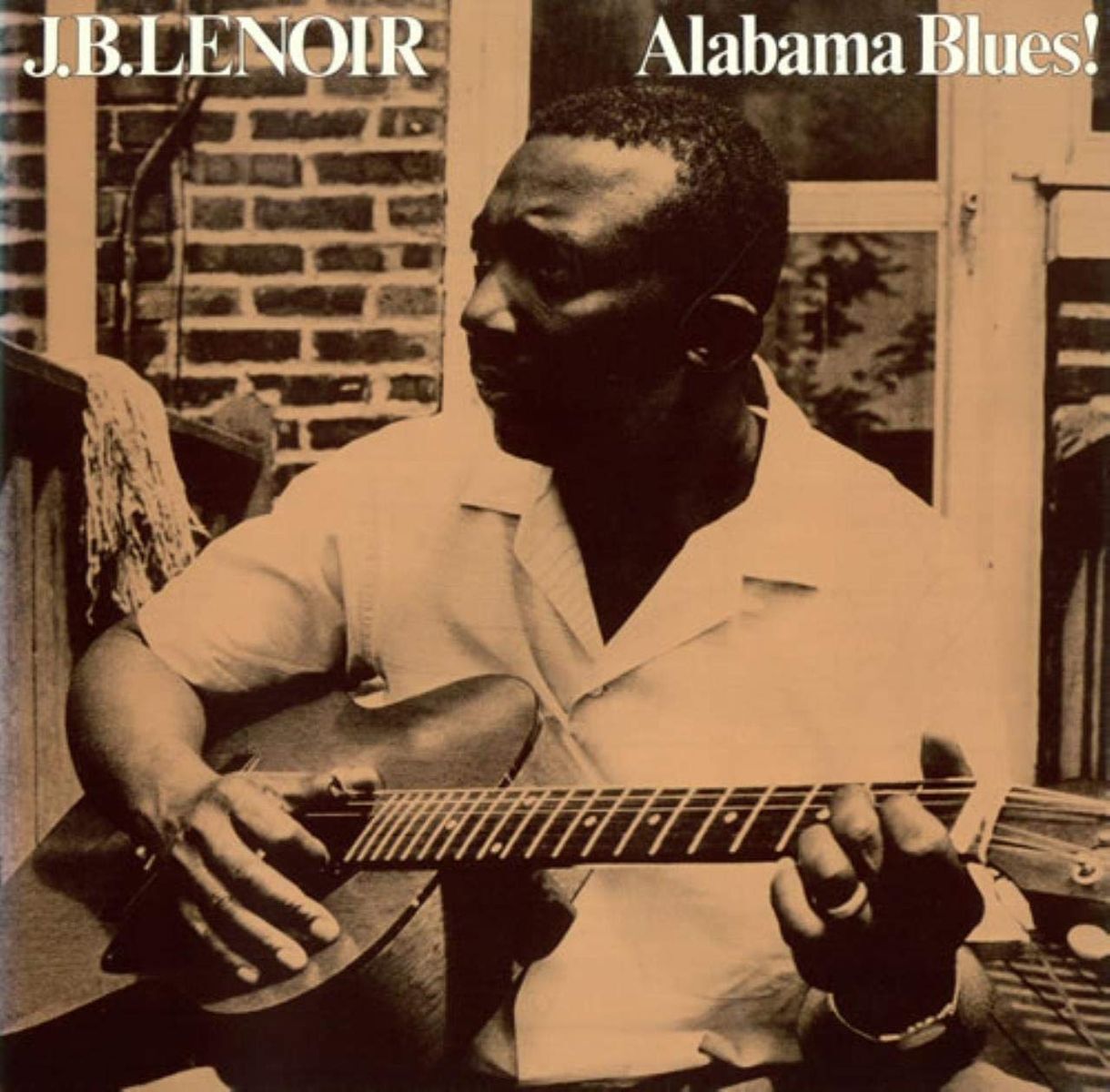
“Alabama Blues” – J.B. Lenoir (1965)
Although this song is called “Alabama Blues,” guitarist and singer-songwriter J.B. Lenoir was actually born in another southern state—Mississippi—in 1929. At that time, racial segregation touched every aspect of life in the state . Black and white people were kept apart in hospitals, schools, stores, restaurants, and libraries, as well as on public transportation and in public facilities. Laws were enacted to prevent Black people from voting. Mississippi was the southern state that spent the least on education for Black children. Violence against Black people was common, and white perpetrators often faced no punishment or legal consequences for their actions. In 1949, Lenoir moved to Chicago and had a successful musical career there, but the things he had witnessed and experienced in his early life continued to haunt him: “I never will go back to Alabama, that is not the place for me / You know they killed my sister and my brother / And the whole world let them peoples go down there free.”
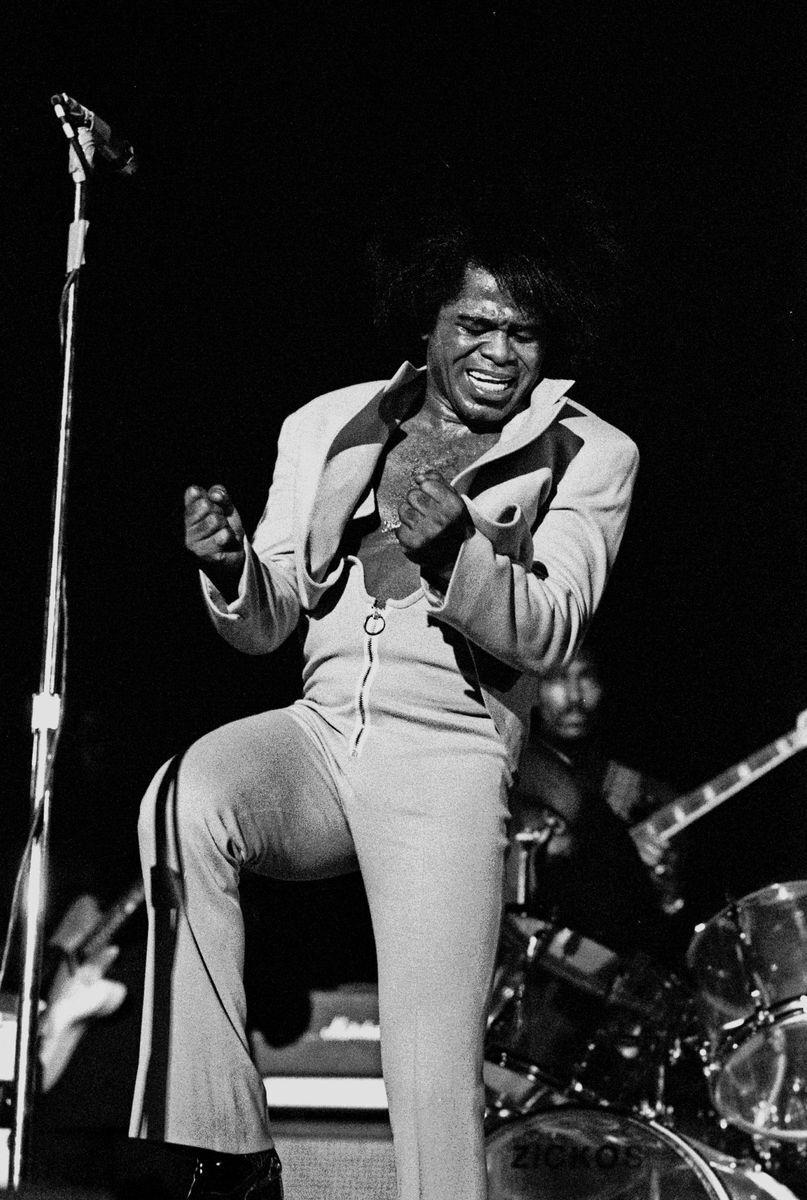
“Say It Loud, I’m Black and I’m Proud” – James Brown (1968)
By the summer of 1968, the civil rights movement had brought about many landmark legal wins, notably the Civil Rights Act of 1964, the Voting Rights Act of 1965, and the Fair Housing Act of 1968. Around the same time, the Black Power movement, which emphasized pride and self-sufficiency, was gaining traction in the United States. James Brown’s “Say It Loud, I’m Black and I’m Proud” was a reflection of the changing times. The lyrics expressed a new self-confidence and assertiveness in the Black community, as well as the desire to do things for themselves: “I’ve worked on jobs with my feet and my hands / But all the work I did was for the other man / And now we demand a chance to do things for ourselves / We tired of beatin’ our head against the wall / An’ workin’ for someone else.”
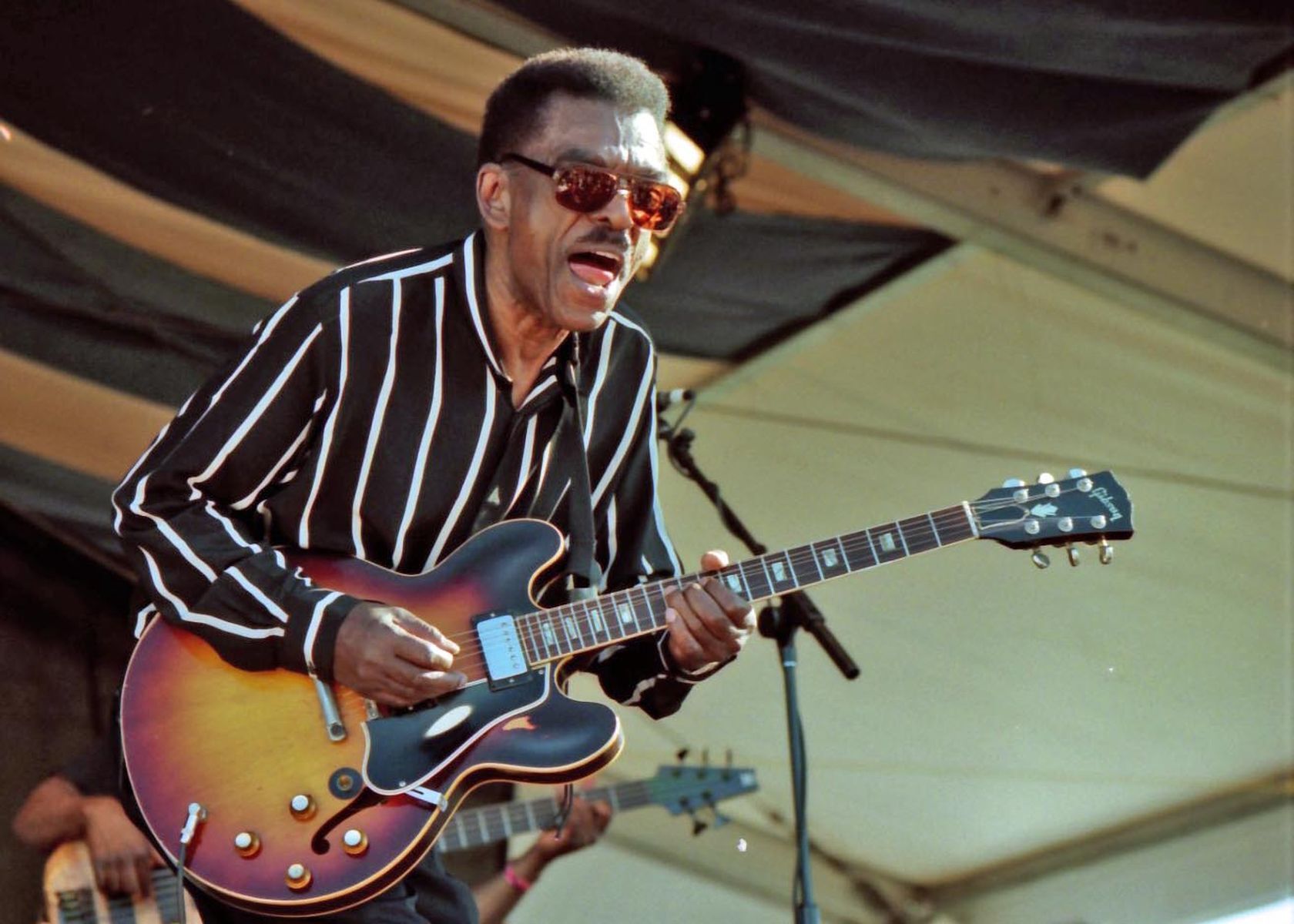
“Is It Because I’m Black” – Syl Johnson (1969)
After Martin Luther King Jr. was assassinated, soul singer Syl Johnson was inspired to write a song about the African-American experience. “Is It Because I’m Black” is a seven-and-a-half-minute socially conscious track that hits the listener’s ears with a potent mix of sorrow, pain, hope, and pride. Johnson sings about the myth of the American Dream (“Ya see, I heard somebody say one time / You can make it, if you try / And some of us, we tried so hard, we tried so hard”) and the fear of an early death (“Something is holding me back / I wonder, is it because I’m Black? / Somebody tell me what can I do / Will I survive, or will I die?”). Decades later, these issues are no less relevant. Johnson may have beat the odds he sang about, but barriers still restrain Black economic mobility, and Black people are much more likely to be killed by the police .
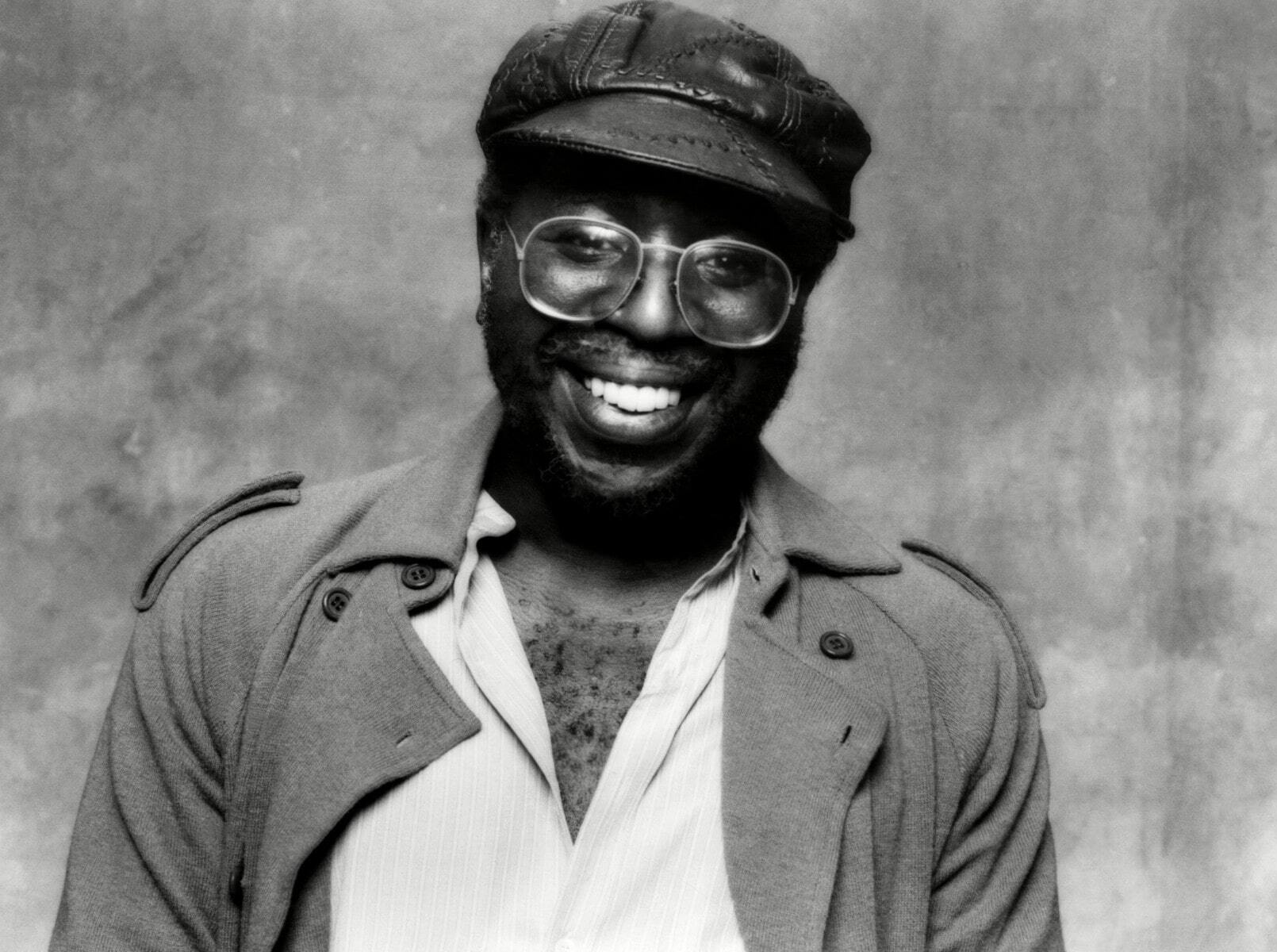
“We the People Who Are Darker Than Blue” – Curtis Mayfield (1970)
The title of Curtis Mayfield’s 1970 song “We the People Who Are Darker Than Blue” is a nod to the first three words of the Constitution of the United States, “We the people.” Its lyrics are a call for solidarity among Black people, regardless of how light or dark their skin colour: “This ain’t no time for segregatin’ / I’m talking ’bout brown and yellow too / High yellow girl, can’t you tell / You’re just the surface of our dark deep well.” (Note: “ High yellow ” is an outdated term used to describe a light-skinned Black person.)
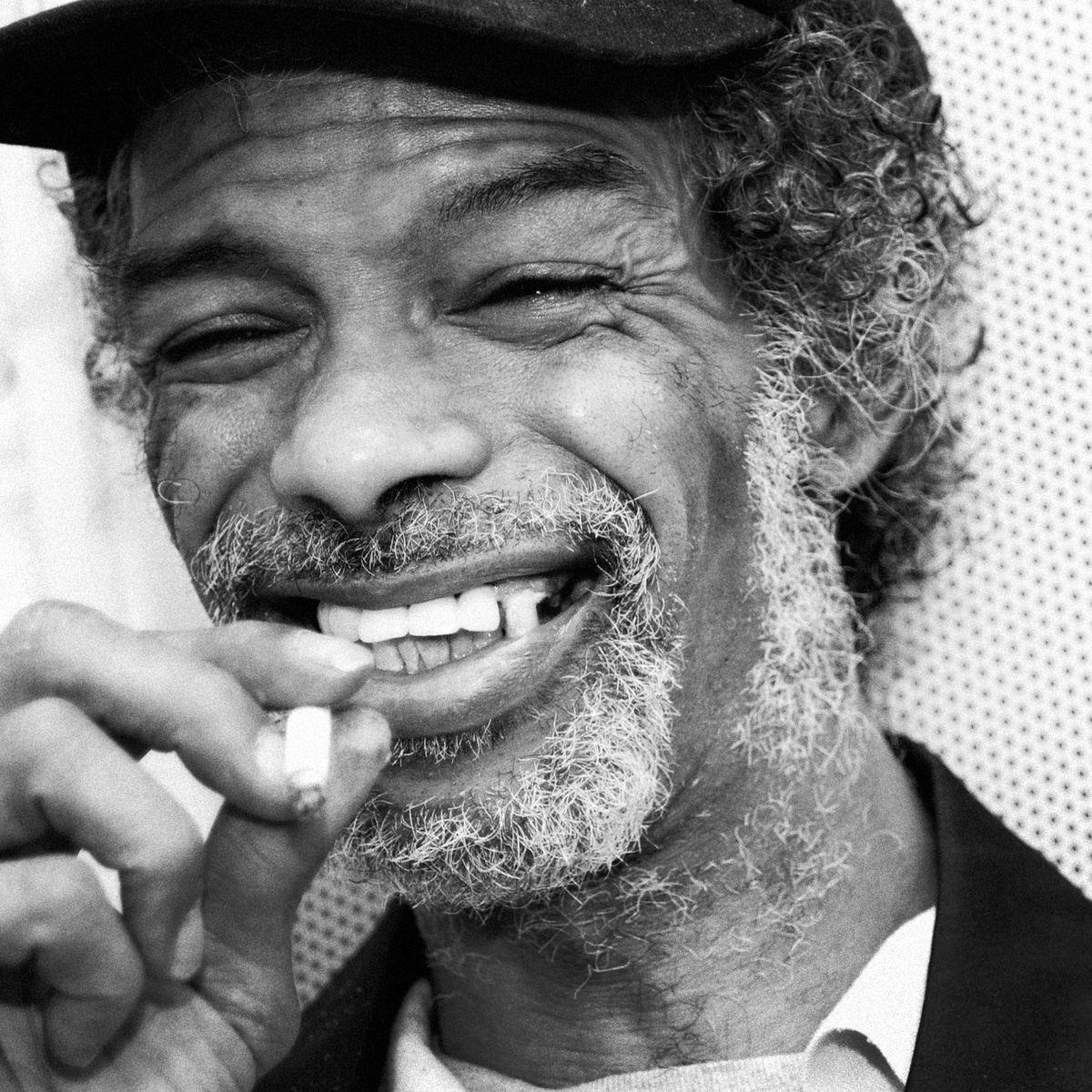
“The Revolution Will Not Be Televised” – Gil Scott-Heron (1971)
Considered a significant precursor to hip-hop, “The Revolution Will Not Be Televised” is laced with Gil Scott-Heron’s trademark sense of humour. He ridicules American politics, celebrities, television shows, popular music, and advertising in equal measure. However, one line stands out, and it is clearly not a joke: “There will be no pictures of pigs shooting down brothers on the instant replay.” The lyric is repeated twice. It’s all the more chilling today, at a time when videos of Black people being beaten or killed by police are everywhere in the media and being disseminated around the world.In an interview for a PBS documentary, Scott-Heron explained the meaning behind “The Revolution Will Not Be Televised” : “You have to change your mind before you change the way you’re living and the way you move. The thing that’s going to change people is something that no one will ever be able to capture on film, it will just be something that you see and all of a sudden you realize that I’m on the wrong page, or I’m on the right page but I’m on the wrong note. And I’ve got to get in sync with everyone else to understand what is going on in this country.” In other words, the first step to social change is in our minds. Only then can we take action to make the world a more equitable place.
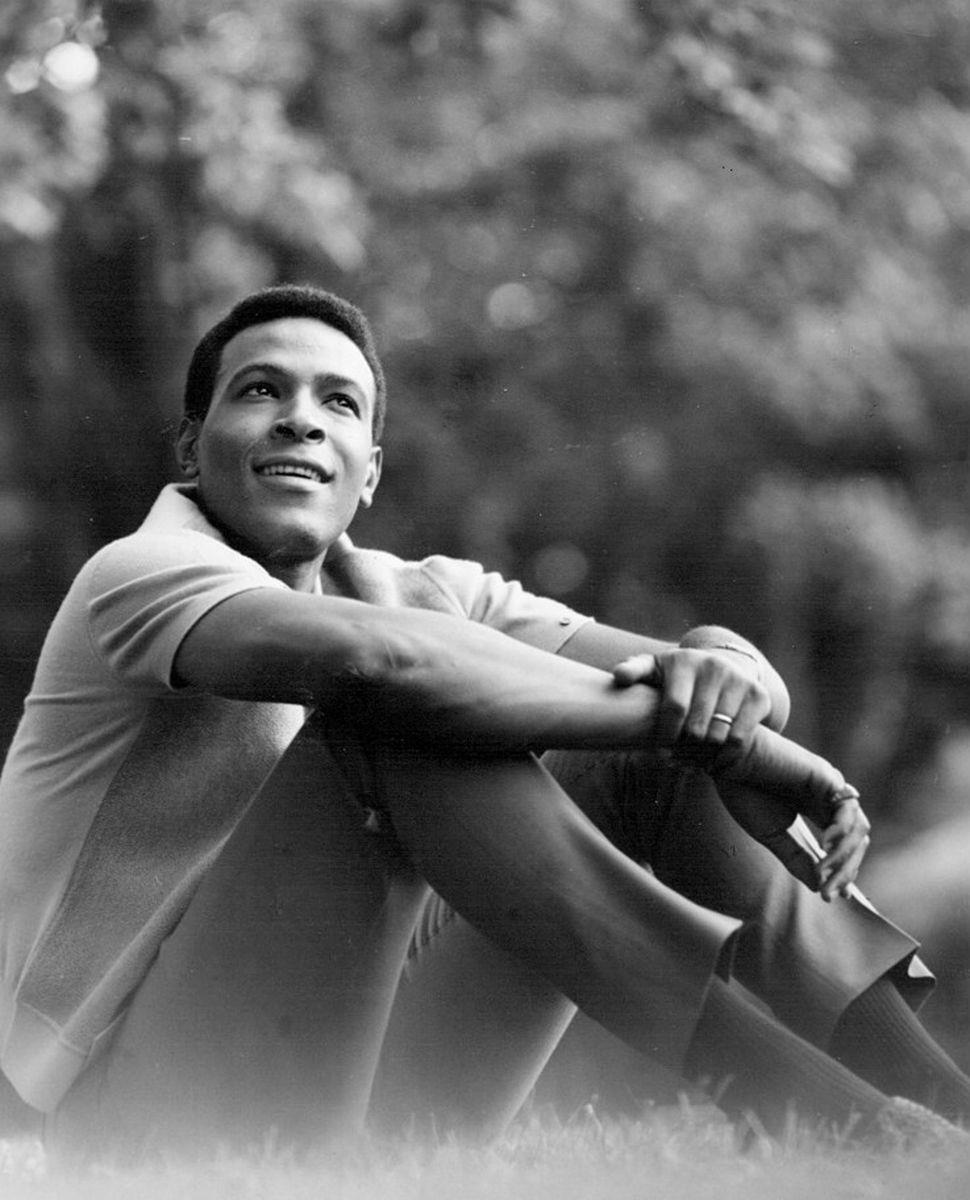
“What’s Going On” – Marvin Gaye (1971)
When Marvin Gaye first told Berry Gordy , the head of Motown Records, about the song “What’s Going On,” Gordy said, “Marvin, why do you want to ruin your career?” When the song was finally released without Gordy’s knowledge, it became the fastest-selling single in Motown history. One of the song’s co-writers, Renaldo “Obie” Benson of the Four Tops, was inspired to write the song when he witnessed police brutality at a protest against the Vietnam War. Gaye added to Benson’s lyrics and wrote an entirely new melody. He was saddened by the violence that erupted during the 1965 Watts Rebellion . The song’s lyrics are a call for peace and healing: “Mother, mother / There’s too many of you crying / Brother, brother, brother / There’s far too many of you dying / You know we’ve got to find a way / To bring some lovin’ here today.”
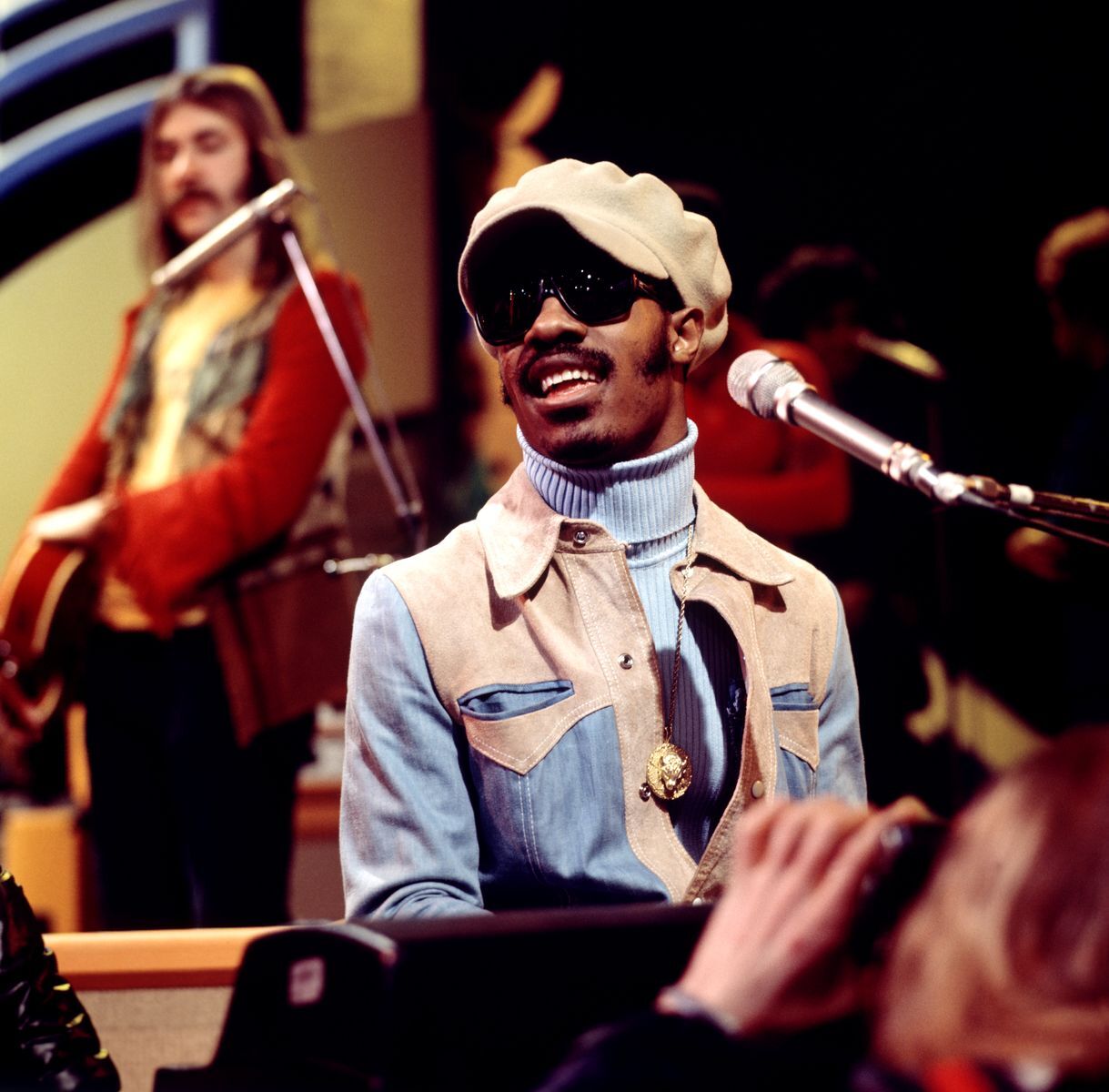
“Living for the City” – Stevie Wonder (1973)
In a mass exodus that spanned from 1915 to 1970 and is often called the “Great Migration,” almost six million African-Americans moved north and west from the southern United States in the hopes of building a better life for their families. In his Grammy Award–winning song “Living for the City,” Stevie Wonder tells the story of a young Black man who moves from Mississippi to New York City to escape the hardships he and his family are experiencing in the South. When he first steps off the bus in the Big Apple, the young man is thrilled (“Wow, New York, just like I pictured it / Skyscrapers and everything”). But within minutes, he finds himself framed for a (possibly drug-related) crime and is promptly arrested, convicted, and sent to prison for 10 years. One set of injustices in the South—racial segregation and a lack of job opportunities—is simply exchanged for another in the North— ghettoization, pollution, and incarceration.
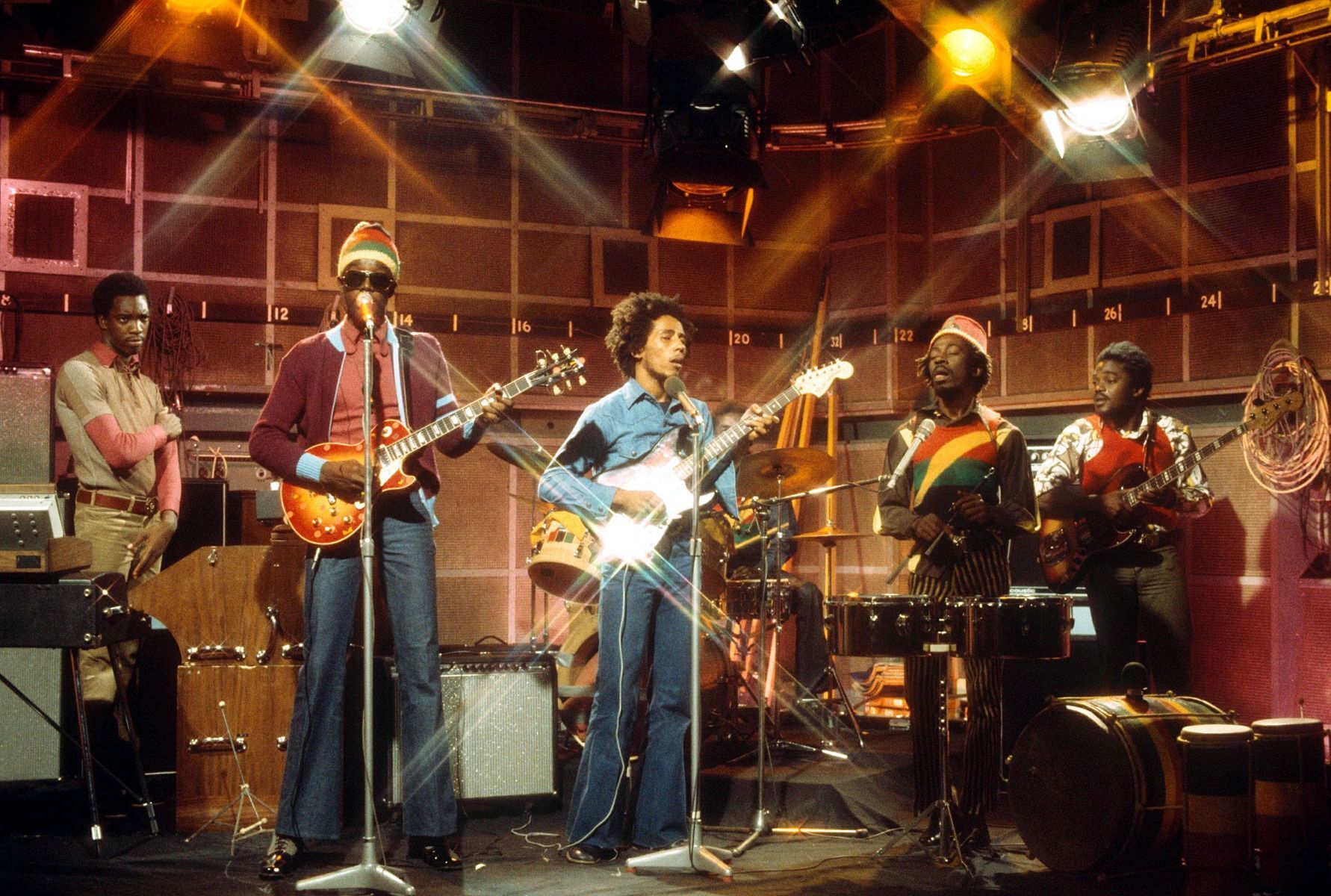
“Get Up, Stand Up” – The Wailers (1973)
One of the most famous reggae songs of all time, “Get Up, Stand Up” can be interpreted as both an anti-religion song and a spiritual song. On the one hand, its lyrics clearly denounce the hypocrisy of what Christian clerics often tell their followers, namely, that their suffering will end when they die and go to heaven (“We sick an’ tired of-a your ism-skism game / Dyin’ ’n’ goin’ to heaven in-a Jesus’ name, Lord / We know when we understand / Almighty God is a living man / You can fool some people sometimes / But you can’t fool all the people all the time.”) In other words, human life has value right here and now on earth , so we should fight for the right to live in dignity. On the other hand, the song is spiritual, because it bears the message that all human beings are equal and have fundamental rights. We shouldn’t be complacent and just pray that God will solve humanity’s problems; we should have the courage to fight for our rights (“Most people think great God will come from the skies / Take away everything / And make everybody feel high / But if you know what life is worth / You will look for yours on earth / And now you see the light / You stand up for your rights”).
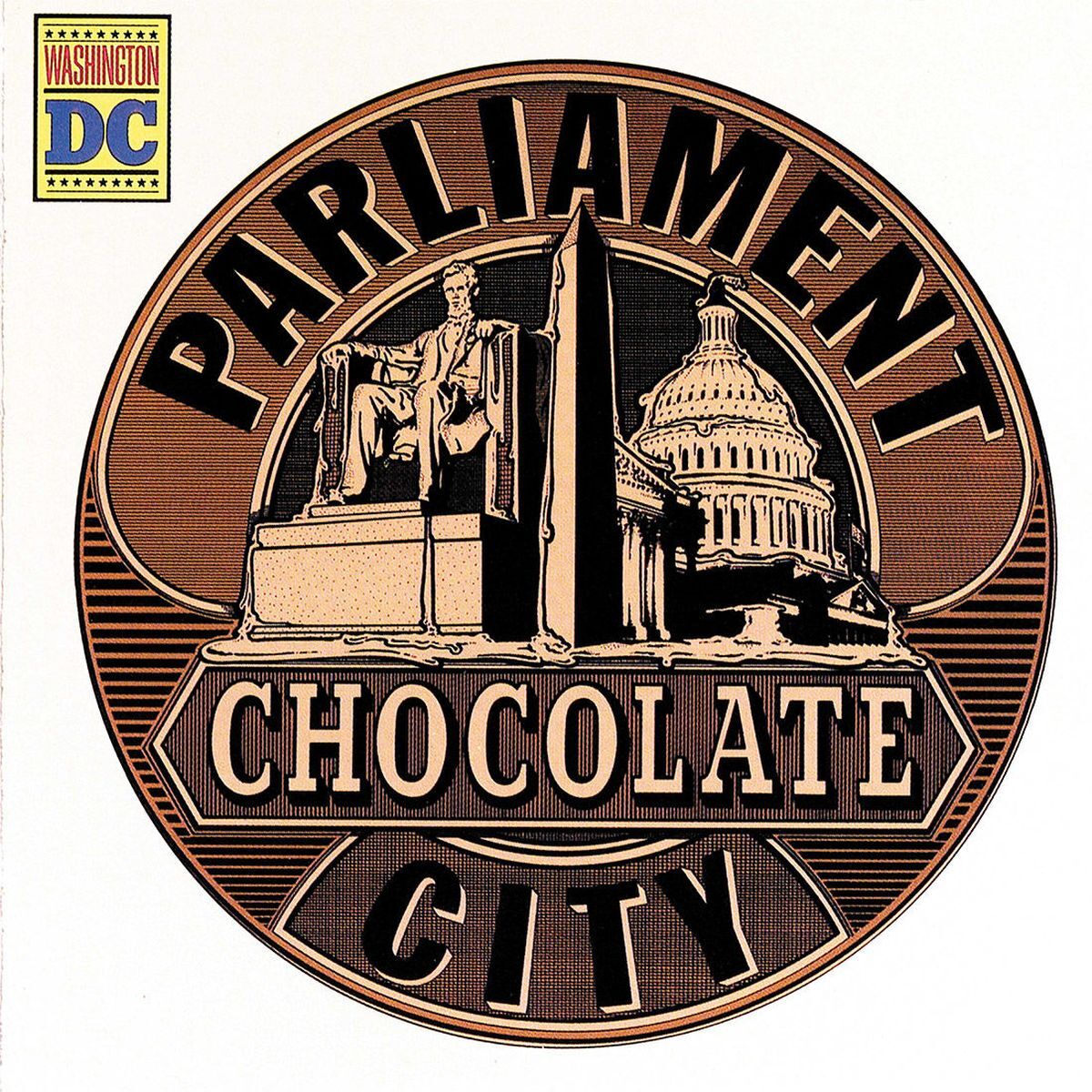
“Chocolate City” – Parliament (1975)
For decades, Washington, D.C., was affectionately known as “Chocolate City” because of its majority African-American population. The Parliament song is a celebration of cities with large Black populations. The funky track playfully opines that it’s only a matter of time before an African-American becomes president of the United States (“They still call it the White House, but that’s a temporary condition too”). Singer George Clinton names Muhammad Ali as president, James Brown as vice-president, Richard Pryor as minister of education, Stevie Wonder as secretary of fine arts, and Aretha Franklin as first lady. How cool would it have been if “Chocolate City” had been played at Barack Obama’s inauguration!
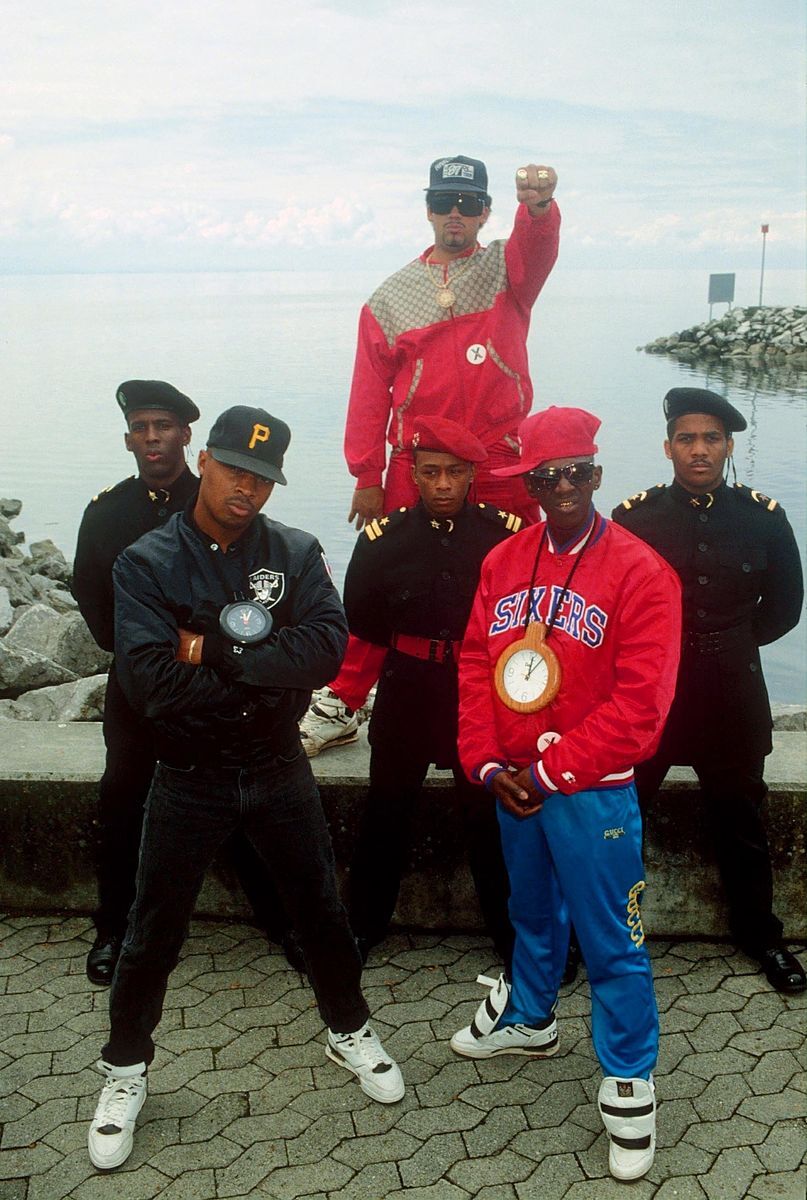
“Fight the Power” – Public Enemy (1989)
Considered one of the most provocative songs of all time, “Fight the Power” was created at the request of film director Spike Lee, who needed a theme song for his 1989 movie Do the Right Thing . Public Enemy’s production team, aptly called The Bomb Squad, used a plethora of samples to create a chaotic yet danceable sound unlike anything that had come before it. Chuck D’s lyrics are equally explosive. The song is an unapologetic battle cry on the power structure that has oppressed Black people for centuries.
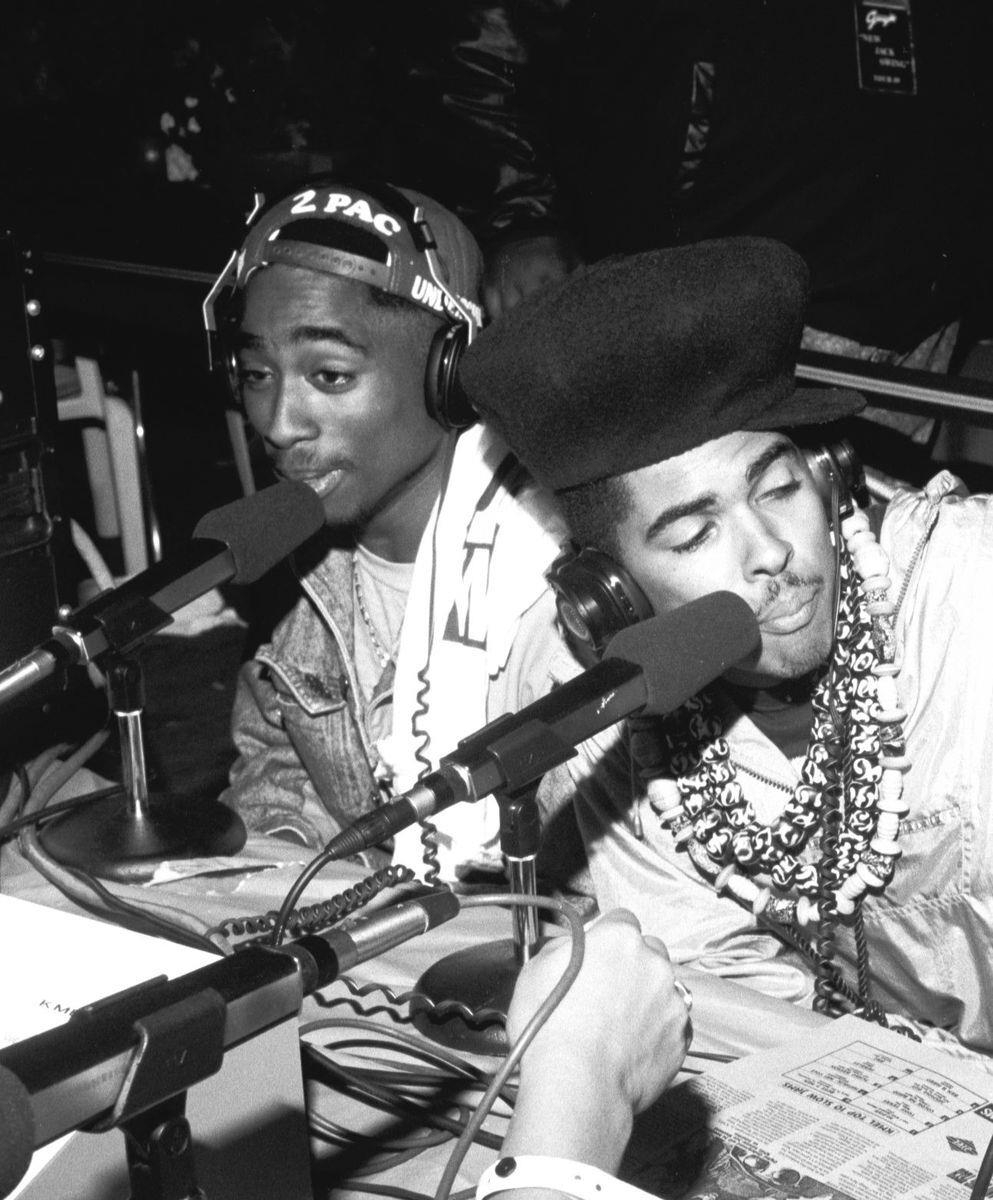
“Changes” (featuring Talent) – Tupac Shakur (1992)
Featuring samples from Bruce Hornsby and the Range’s 1986 hit “The Way It Is,” Tupac Shakur’s hip-hop hit “Changes” talks about racism and police brutality, poverty and mass incarceration. Tupac also raps about the hypocrisy of the American government spending millions on wars in the Middle East instead of spending it in the United States to lift people out of poverty (“It’s war on the streets and the war in the Middle East / Instead of war on poverty / They got a war on drugs so the police can bother me”). This line is also a fierce indictment of the so-called “war on drugs” that disproportionately targets people of colour and the poor across all racial demographics.
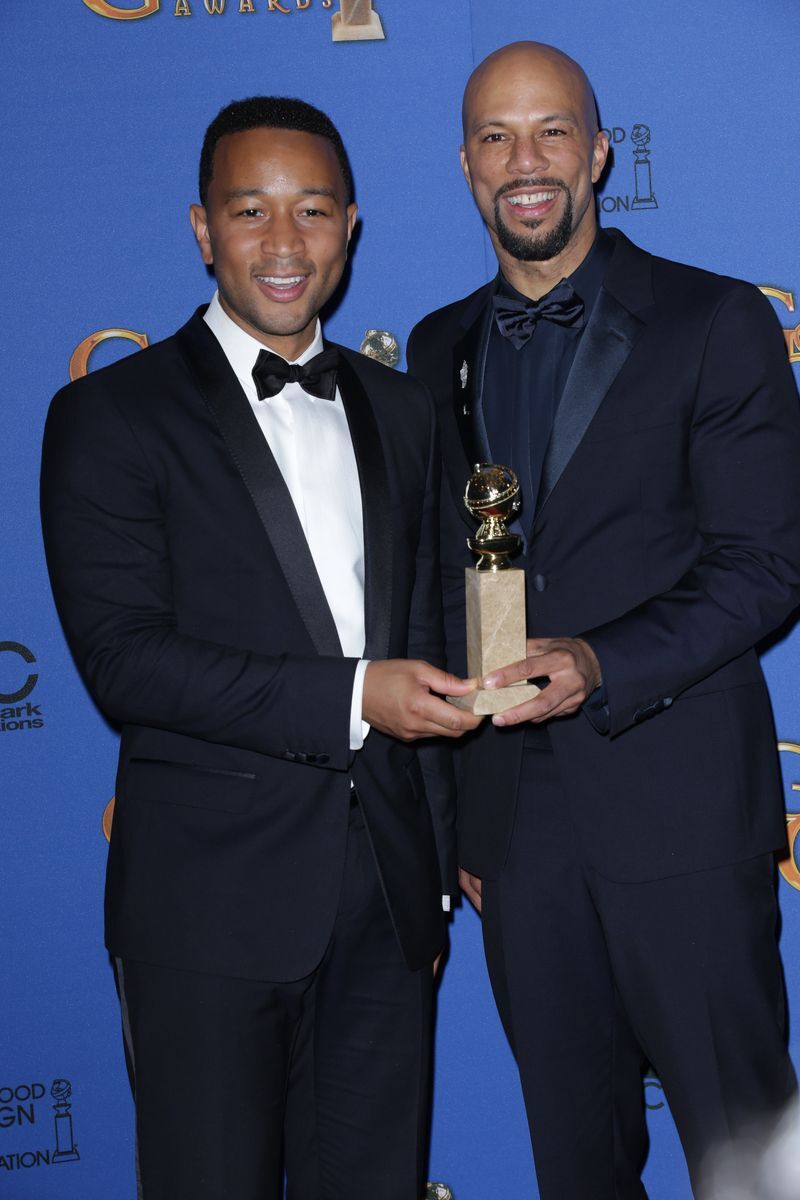
“Glory” – Common and John Legend (2014)
Ava DuVernay’s 2014 historical drama Selma chronicles the historic marches from Selma to Montgomery, Alabama. The three marches were organized by nonviolent activists, including Martin Luther King Jr., to defend voting rights for African-Americans. On March 7, 1965, state troopers beat unarmed marchers with billy clubs and sprayed them with tear gas, a horrific event that became known as “ Bloody Sunday ” and was a turning point in the civil rights movement.“Glory,” one of the songs on the Selma soundtrack, won Best Original Song at the 2015 Golden Globe Awards and the 87th Academy Awards. The song combines the talents of singer John Legend and hip-hop artist Common. Both artists wanted the song to show the parallel between the civil rights movement of the 1960s and the Black Lives Matter movement that is taking place now. As Common put it in an interview , “It’s a song for right now. Everything about the song is about the present. It resonates with what we see going on in the country, in Ferguson, other cities, and in the world.”
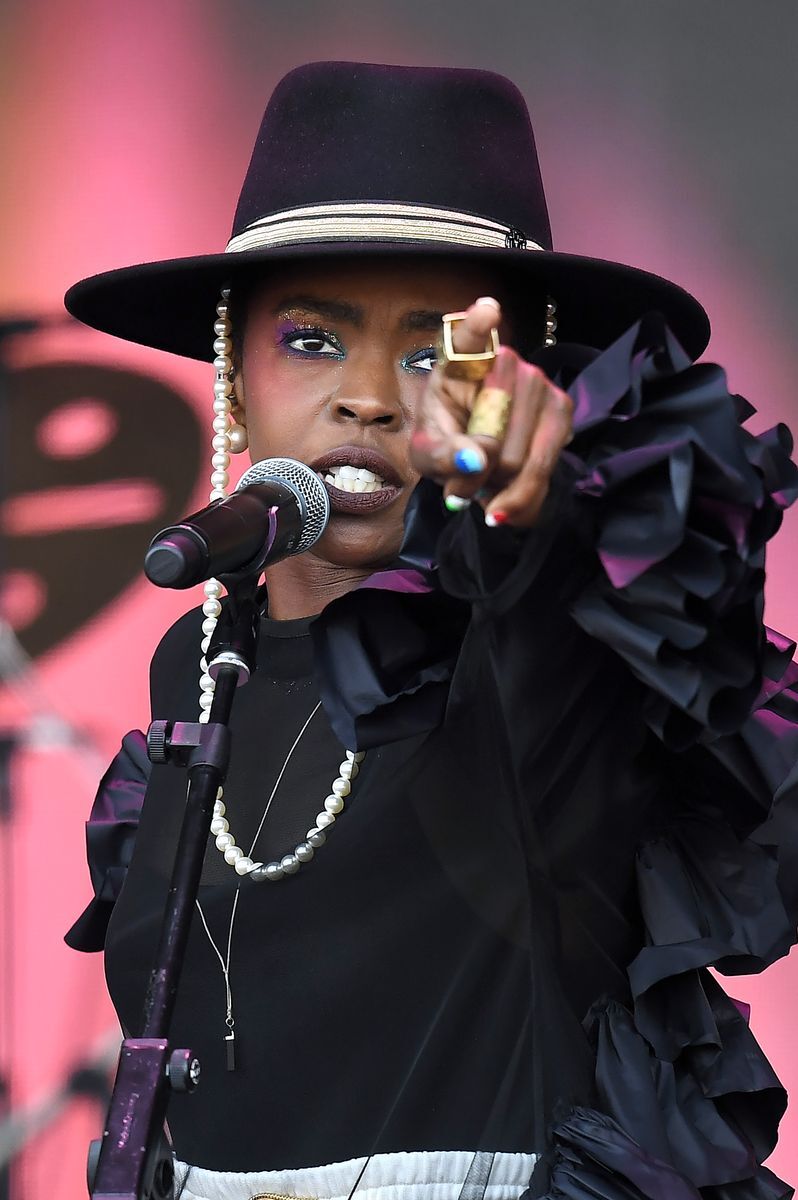
“Black Rage” – Lauryn Hill (2014)
Sung to the tune of the Rodgers and Hammerstein song “My Favourite Things” from the movie The Sound of Music , “Black Rage” expresses Lauryn Hill’s feelings of despair and anger about the treatment of Black people over the past several centuries. With powerful lines such as “Black rage is founded on two-thirds a person / Rapings and beatings and suffering that worsens / Black human packages tied up in strings” and “Sacrifice, sacrifice who makes this fortune? / Greed, falsely called progress,” the song makes clear the connection between capitalism and greed and the ongoing oppression of Black people since the beginning of the transatlantic slave trade. In August 2014, Hill dedicated a “sketch” of the song to the people fighting for justice for Michael Brown in Ferguson, Missouri.
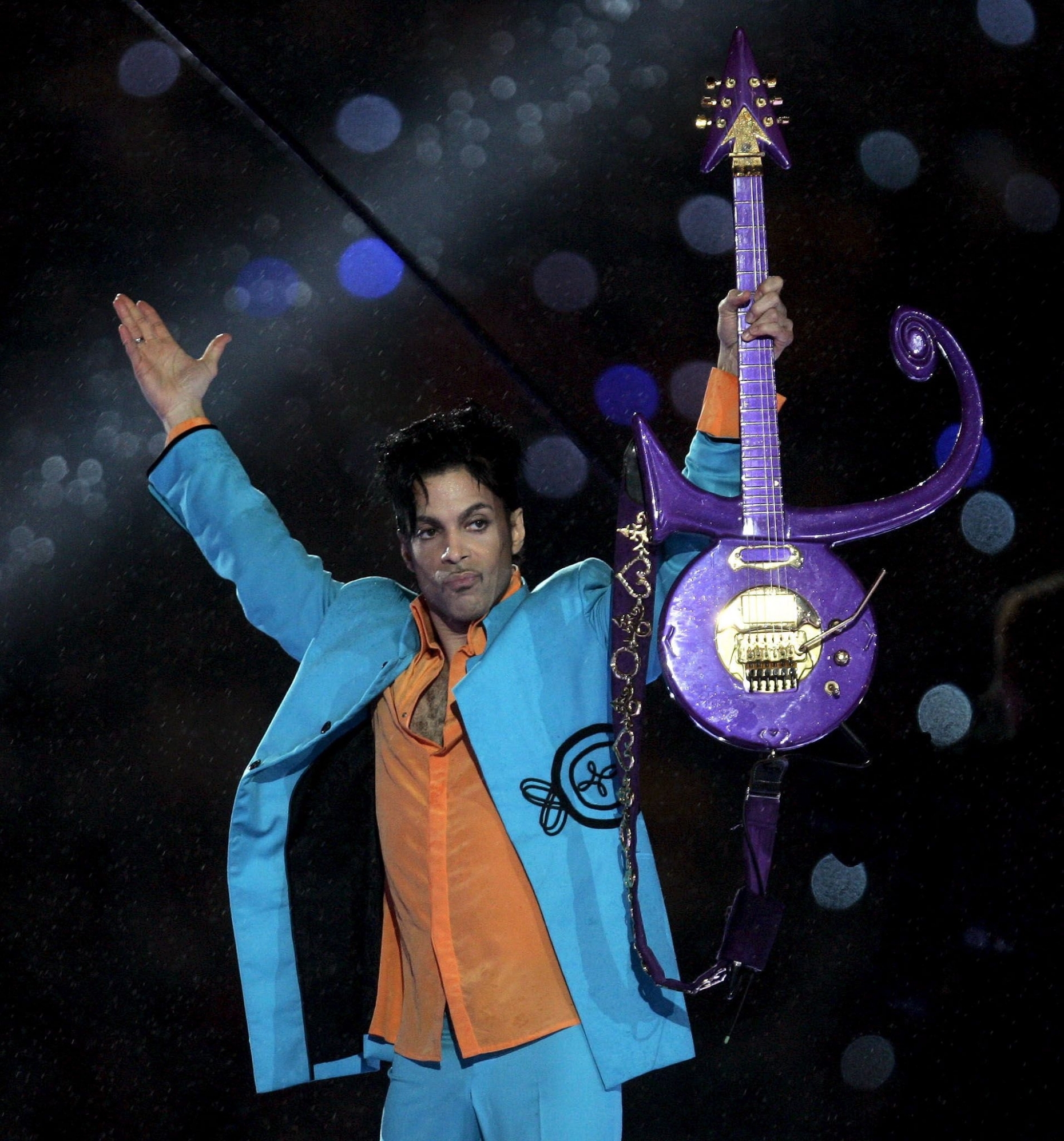

“Baltimore” (featuring Eryn Allen Kane) – Prince (2015)
“Does anybody hear us pray / For Michael Brown or Freddie Gray? / Peace is more than the absence of war,” sings Prince on “Baltimore,” which was released on his final studio album, Hit n Run Phase Two . Prince was deeply affected by the death of Freddie Gray. The tragic event inspired him to write a song that would address “the unrest in Baltimore and the sociopolitical issues around the country in the wake of a slew of killings of young black men.” The tune is surprisingly upbeat and hopeful, yet it remains a protest song. It was released on Twitter on May 9, 2015, a day before Prince’s Rally 4 Peace concert in Baltimore. Thousands of people attended the concert , and a portion of the proceeds was donated to Baltimore-based youth charities.
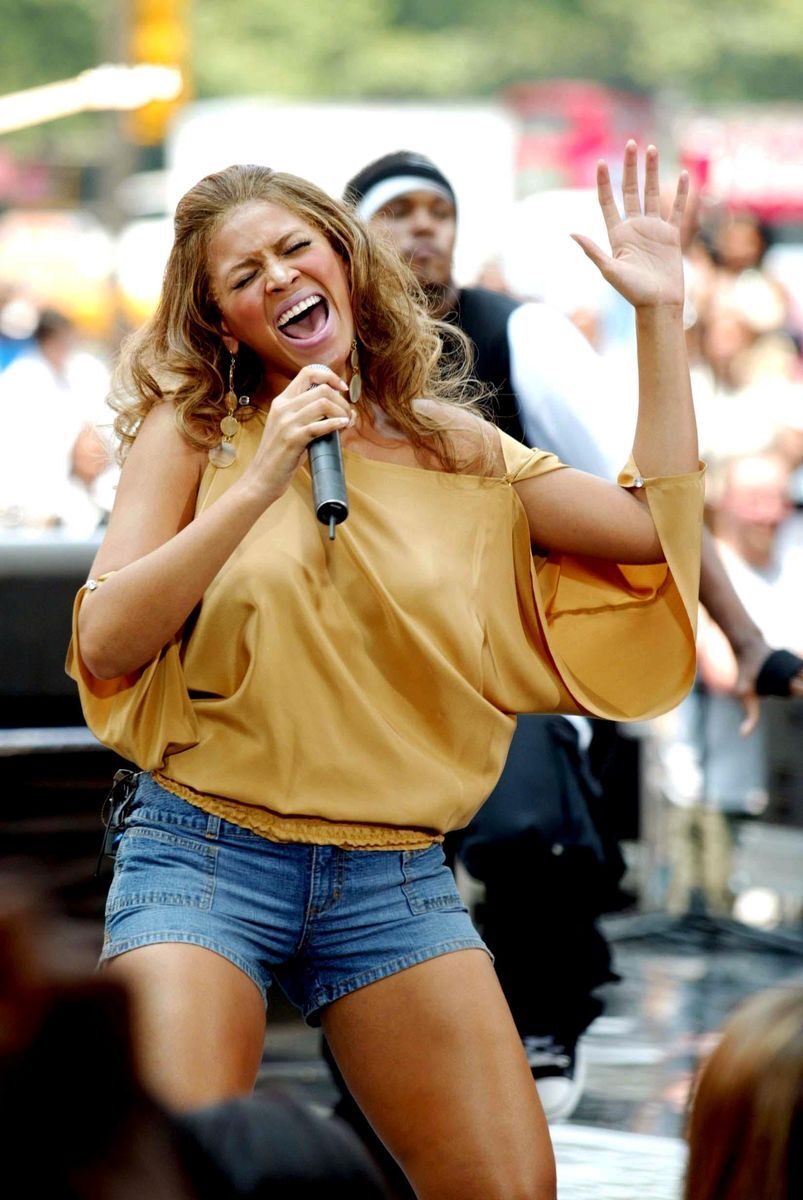
“Freedom” (featuring Kendrick Lamar) – Beyoncé (2016)
Beyoncé and Kendrick Lamar’s 2016 song “Freedom” is an appropriate way to end this musical journey through Black history. As Wesley Morris put it in an article for The New York Times Magazine , “For centuries, black music, forged in bondage, has been the sound of complete artistic freedom.” The 10th track on Beyoncé’s multimedia audiovisual album Lemonade is an anthem dedicated to Black women . The mothers of Trayvon Martin, Michael Brown, and Eric Garner appear in the album’s visual component, each woman holding a photo of her deceased son. Beyoncé clearly sees herself as a self-reliant and powerful woman (“I break chains all by myself / Won't let my freedom rot in hell”), and the overall message of the song is one of empowerment and the human need for freedom (“Freedom! Freedom! I can't move / Freedom, cut me loose! Yeah / Freedom! Freedom! Where are you? / ’Cause I need freedom, too!”).
More for You
19 Things People Treat As Safe That Actually Are Pretty Dangerous
NATO Aircraft Activated After Waves of Russian Strikes
Here's No. 1 thing mentally strong couples 'never' do, says relationship therapist of 20 years
I'm abrosexual - it took me 30 years to realise
7 Ways People Destroy the Value of Their Homes, According to a Real Estate Agent
One of these pictures of me is real and the other is AI – but which is which?
19 Things That Will Happen When You Stop Drinking Alcohol
Do I have to pay off my spouse's debts when they die? Here's what you're responsible for and what you aren't after a loved one's death
Harvard psychologist shares 5 toxic things 'highly narcissistic' people always do in relationships
29 common human foods you may not realize are poisonous to your dog
Martin Lewis issues warning to people choosing air fryer over oven
A woman said her tattoos got her rejected for a job, but experts say personality is far more important
Unsellable Houses' Lyndsay Lamb Says Buyers Are Moving Away From This Color Trend
Scientists claim people with this blood type more likely to have early stroke
Liz Cheney's Message to Supreme Court After Donald Trump Hearing
The #1 restaurant chain in America, according to diners—and see the rest of the top 50
Average US annual salary by age revealed – see how you compare
Barack Obama shares his No. 1 piece of advice for his own daughters: Don't let your hunger for success ruin your happiness
People Who Don’t Show Empathy Usually Have These 18 Traits
Scientists have discovered the maximum age a human can live to

- Artists add
- Black Uhuru
Lyrics submitted by ruben
Journey Lyrics as written by John Lee Hooker
Lyrics © BMG Rights Management
Lyrics powered by LyricFind
- Highest Rated
- Most Recent
- Oldest First
- No Comments
Add your thoughts
Log in now to tell us what you think this song means.
Don’t have an account? Create an account with SongMeanings to post comments, submit lyrics, and more. It’s super easy, we promise!
- Artists - B
- Journey Lyrics
- Artists - S
- Speedy Ortiz
More Featured Meanings

Most popular lyric tags
More black uhuru lyrics.
- Puff She Puff Lyrics
- Sponji Reggae Lyrics
- Hey Joe Lyrics
- Push Push Lyrics
- Shine Eye Gal [Live] Lyrics
Black and White (song)
Black and White is the opening theme song for the English dub of the fourteenth season , Pokémon: Black & White . It was used from In the Shadow of Zekrom! to Battle for the Underground! . The opening animation is composed of clips from the fourteenth Japanese opening Best Wishes! . A full-length version under the title Black and White Theme is used as the opening song of White—Victini and Zekrom and Black—Victini and Reshiram .
- 1.1 TV version
- 1.2 Movie version
- 2.1 Pokémon
- 5 In other languages
- 6 References
It's always hard, When the journey begins. Hard to find your way, Hard to make new friends. But there's nothing you can't do, 'Cause you've got the power inside of you! It's not always black and white, But your heart always knows what's right. It's not about win or lose, it's the path you choose. Let the journey begin, Pokémon!
Movie version
It's always hard, When the journey begins. Hard to find your way; Hard to make amends. But there's nothing you can't do, 'Cause you've got the power inside of you. It's never easy, To make a choice: To keep things inside, Or raise your voice. But for everyone there comes a time When the light inside begins to shine. It's not always right or wrong, As long as your spirit's strong. It's not always win or lose, It's the road you choose; The answer's within. It's not always black and white, But your heart always knows what's right. Let the journey begin— So many choices; How do we know? So many places; Where do we go? What should I say? What should I do? Still, we're together: me and you! It's not always right or wrong, As long as your spirit's strong. It's not always win or lose, It's the road you choose; The answer's within. It's not always black and white, But your heart always knows what's right. Let the journey begin: Pokémon! There's nothing you can't do, 'Cause you've got the power inside of you. It's not always right or wrong, As long as your spirit's strong. It's not always win or lose, It's the road you choose; The answer's within. It's not always black and white, but your heart always knows what's right. Let the journey begin: Pokémon!
- Pikachu ( Ash's )
- not feature any human characters.
- be composed completely in CGI .
- not feature a Trainer's Pokémon other than Ash's Pikachu .
- However, if movie songs are counted, Pokémon World is the first dub opening to feature a duet.
- Unlike in Best Wishes! , all of the Pokémon are revealed in full color, not in silhouetted forms. Due to this, numerous Pokémon that were not known to American audiences were leaked before the game release.
- A remixed version of Black and White was played as background music in Oshawott's Lost Scalchop! and Reunion Battles In Nimbasa! . An instrumental version was also used in Battle for the Underground! .
- According to John Loeffler, he intended to reuse this dub opening for Pokémon: BW Rival Destinies , possibly with a new singer and arrangement, but The Pokémon Company International wanted a new song for the following season. [1]
In other languages
- ↑ Interview with John Loeffler
- Articles with accompanying video
- English opening themes
Navigation menu
Page actions.
- View source
Personal tools
- Create account
- Editor's Hub
- Frequently asked questions
- Bulbawiki forum
- Recent changes
- Random page
Bulbagarden
- Bulbagarden home page
- Bulbagarden Archives
- Bulbagarden Forums
- Bulbagarden Discord server
- What links here
- Related changes
- Upload file
- Special pages
- Printable version
- Permanent link
- Page information
- Cite this page
- This page was last edited on 19 February 2024, at 20:22.
- Content is available under Attribution-NonCommercial-ShareAlike 2.5 . (see Copyrights for details)
- Privacy policy
- About Bulbapedia
- Disclaimers
- Mobile view
- ABBREVIATIONS
- BIOGRAPHIES
- CALCULATORS
- CONVERSIONS
- DEFINITIONS

PDF Playlist
Black Uhuru

Follow 1 fan
Black Uhuru are a Jamaican reggae group formed in 1972, initially as Uhuru (Swahili for 'freedom'). The group has undergone several line-up changes over the years, with Duckie Simpson always maintaining group control and ownership. Their album Anthem, featuring the hit single "What is Life?" won the first ever Grammy Award for Best Reggae Album in 1985. more »
Struggling with Journey? Become a better singer in 30 days with these videos!
Sheet Music PDF Playlist
Lyrics Licensed & Provided by LyricFind
Discuss the Journey Lyrics with the community:
Report Comment
We're doing our best to make sure our content is useful, accurate and safe. If by any chance you spot an inappropriate comment while navigating through our website please use this form to let us know, and we'll take care of it shortly.
You need to be logged in to favorite .
Create a new account.
Your name: * Required
Your email address: * Required
Pick a user name: * Required
Username: * Required
Password: * Required
Forgot your password? Retrieve it
Use the citation below to add these lyrics to your bibliography:
Style: MLA Chicago APA
"Journey Lyrics." Lyrics.com. STANDS4 LLC, 2024. Web. 27 Apr. 2024. < https://www.lyrics.com/lyric/27414818/Black+Uhuru/Journey >.
Missing lyrics by Black Uhuru?
Know any other songs by black uhuru don't keep it to yourself, image credit, the web's largest resource for, music, songs & lyrics, a member of the stands4 network, watch the song video, browse lyrics.com, our awesome collection of, promoted songs.

Get promoted
Are you a music master?
Finish the lyric "i told you__", free, no signup required :, add to chrome, add to firefox, on radio right now.
Powered by OnRad.io
Think you know music? Test your MusicIQ here!
Movies soundtrack
- The Black Cauldron 1985
- Conquest 1453
- Deep Blue Sea 1999
- Home Fires 2015
- K-19 The Widowmaker
- Mountains of the Moon 1990
- Rescue Dawn
- Search Please fill out this field.
- Manage Your Subscription
- Give a Gift Subscription
- Newsletters
- Sweepstakes
Every Place Taylor Swift References in Tortured Poets Department , from the Black Dog to the Heath
Here's a dissection of the specific places Taylor Swift mentions in "The Tortured Poets Department" song lyrics, including The Chelsea Hotel
:max_bytes(150000):strip_icc():format(webp)/skyler-byline-photo-88a543e2de8b4e68aa41cbb8844eff1f.png)
Getty; Jeff Kravitz/FilmMagic; Getty
Taylor Swift has processed her emotions around the world.
The pop superstar released The Tortured Poets Department on April 19, her eagerly anticipated album she described as an " anthology of new works " that reflect a "fleeting and fatalistic" period in her life that has ended.
After dropping the expected body of work at midnight, Swift surprised fans two hours later by announcing that TTPD is a secret double album . The second installment consists of 15 additional songs.
Within each of Swift's 31 tracks — with a total run time over two hours — are intricately detailed stories from past relationships laced with longing and heartache .
While the singer-songwriter explicitly mentions many of the locations in which she sorted through her feelings throughout those moments, she leaves it up to listeners to decode who the past lover is that she's referencing — in classic Swift fashion.
Fans have already connected songs to her ex Joe Alwyn and The 1975 frontman Matty Healy , as well as her current boyfriend Travis Kelce . Swift also name-drops celebrities like Charlie Puth , Stevie Nicks , and Jack Antonoff — in addition to singing about fellow "tortured poets."
Read on for all the real places Taylor Swift mentions in The Tortured Poets Department , including where she's experienced highs and lows, love and heartache.
Swift announced that “Fortnight,” featuring Post Malone , is the first single off The Tortured Poets Department . The state of Florida is mentioned in the lyrics.
"Going to Florida by the car you won / But it won’t start up till you touch, touch, touch me," writes Swift.
When speaking with iHeartRadio, Swift said "Fortnight” is a song that "exhibits a lot of the common themes that run throughout this album, one of which being fatalism, longing, pining away, lost dreams." She said that she "always imagined" the song being set in an "American town where the American Dream you thought would happen to you didn't."
Florida is seemingly a recurring place of escape for the singer, at least metaphorically within TTPD album. In fact, the eighth song on the track is simply titled " Florida!!! " (featuring Florence + The Machines).
"'Florida!!!' is a song I wrote with Florence + The Machine, and I think I was coming up with this idea of like, what happens when your life doesn’t fit, or your choices you’ve made catch up to you," Swift told iHeartRadio of creating the track.
The singer highlighted how at times in life "you’re surrounded by these harsh consequences and judgment, and circumstances did not lead you to where you thought you’d be and you just want to escape from everything you’ve ever known," leading one to question "is there a place you could go?"
Swift also explained she is "always watching" Dateline and noticed how "people have these crimes that they commit, where do they immediately skip town and go to? They go to Florida."
The Chelsea Hotel
The album's title track, "The Tortured Poets Department," mentions The Chelsea Hotel in its lyrics.
"I laughed in your face and said / 'You're not Dylan Thomas, I'm not Patti Smith' / This ain't the Chelsea Hotel, we're modern idiots," writes Swift.
The Chelsea Hotel is a famed landmark in New York City. The 12-story Manhattan hotel, which was built in the late 19th century, famously housed writers, painters, authors and socialites. Thomas and Smith, both renowned writers in their own right, lived in the hotel.
It reopened in 2022 after a 12-year-long renovation and was just named one of the 21 best hotels in New York by Travel + Leisure.
Swift admits in "Down Bad" that she lets her emotions out in the gym. (She previously detailed her tour prep to Time , sharing she trained at Dogpound ).
"Now I’m down bad, crying at the gym / Everything comes out teenage petulance / F—k it if I cant have him," she writes on the album's fourth track.
The Heath in London
"So Long, London" is one of the most heart-wrenching tracks on TTPD . The song's lyrics detail Swift's attempt at saving a failing relationship and the loneliness she dealt with during that time.
"I stopped trying to make him laugh/ Stopped trying to drill the safe," she sings. (In her Time cover interview, Swift opened up about moving to a "foreign country" — likely the U.K., where she often spent time with Alwyn — amid her public feud with Kanye West and Kim Kardashian .)
Later in the "So Long, London" lyrics, Swift makes a reference to "the house in the Heath" she left behind. A heath is technically an uncultivated ground where grass and small plants grow, but Hampstead Heath is also a notable London park and the adjacent neighborhood of Hampstead is home to many celebrities.
This isn't the first time Swift has made mention of the location in one of her songs. On "London Boy" off 2019's Lover, she sings "Like a Tennessee Stella McCartney on the Heath."
The Black Dog
The Black Dog
The Black Dog is a real bar in London, and also the title of a TTPD bonus track. The lyrics tell the story of a person she watches enter the bar, a move that seemingly betrays her.
"I am someone who until recent events / You shared your secrets with / And your location, you forgot to turn it off," she writes in verse one. "And so I watch as you walk / Into some bar called The Black Dog / And pierce new holes in my heart," she continues.
Swift reiterates that this person "forgot to turn it off," likely in reference to their location tracking on their phone. In the chorus, she goes on to say, "I just don't understand how you don't miss me / In The Black Dog, when someone plays 'The Starting Line.'
"The Starting Line" is mentioned a few times within the album, possibly in reference to the band often covered by The 1975. Within the song, Swift writes about this person meeting a girl at the bar, but she's too young to know the pop-punk band from the early 2000s.
Central Park
Swift mentions the lake in New York's Central Park when singing "The Bolter," the last song on the album. She sings, "When it's all roses, portrait poses / Central Park Lake in tiny rowboats / What a charming Saturday."
The singer previously teased to the crowd during her Melbourne tour stop on The Eras Tour earlier this year. Swift told the crowd her latest work was something that she "needed" to make.
"It was really a lifeline for me — just the things that I was going through, the things that I was writing about ... it kind of reminded me why songwriting actually gets me through my life," she said. "I've never had an album that I needed songwriting more than I needed it on Tortured Poets ."
Related Articles

IMAGES
VIDEO
COMMENTS
Black Journey is a group song by Fling Posse. It was released on March 24, 2021, as part of the Fling Posse VS MAD TRIGGER CREW album. Lyrics: Tanaka Composition: Tanaka & Kenkaiyoshi Arrangement: Kenkaiyoshi Length: 4:24 Tempo: 132 BPM Length: 2:13 (Part A) / 2:20 (Part B) Attribute: DIAMOND...
shiranakatta kanjou ga. Kono mune wo mitashiteite. Tonari ni warau omaera ga. Ore wo ore janaku saseteita. Ima wa tada kono tabi wo motto, tsuzuketai dake. Into our Black, black Journey. Saigo darou inochi tsukami ni idomu tabi. Jack the line!! hitsuyou nai Justify. "I wanna" dake de kamawanai tabiji.
Fling Posse - Black Journey (Romanized) Lyrics: Ore no kage ga mata waratte iru / Dare no tame no jinsei darou / Munashisa dake / Ikiba no nai / Kono omoi wo / Ame mitai ni kami kudaite shimaetara ...
Black Journey Lyrics: 俺の影がまた笑っている / 誰のための人生だろう、虚しさだけ / 行き場のない この思いを / 飴みたいに 噛み砕いて しまえたら ...
Song used: Black Journey Album: Fling Posse VS MAD TRIGGER CREW Vocals: Fling PosseRamuda Amemura - Shirai YusukeGentaro Yumeno - Soma SaitoDice Arisugawa -...
Fling Posse『Black Journey』の歌詞ページです。『Black Journey』は プロジェクト【ヒプノシスマイク-Division Rap Battle- (ヒプマイ)】のソング。俺の影がまた笑っている 誰のための人生だろう、虚しさだけ 行き場のないこの思いを 飴みたいに噛み砕いてしまえたら なんて 星に願っても…
Watch Fling Posse rap about their struggles and dreams in Black Journey, a song from the Hypnosismic project.
No credit card needed. Listen to Black Journey on Spotify. Hypnosis Mic -D.R.B.- (Fling Posse) · Song · 2021.
Advancement to corrupt the mind. Babylon in their little way. Thinking of all the benefits there are. I and I humble lion chant Mount Zion. I am at a pace. Why you scrabbing my face. Some must see ...
Hypnosis Mic -D.R.B.- (Fling Posse) · Song · 2021. Your Library. Playlists Podcasts & Shows Artists Albums Podcasts & Shows Artists Albums
To the styles of music he names, one could add soul, funk, disco, house, hip-hop, rock and roll, and many others. The history of Black people is embedded in their music. As comedian Roy Wood Jr ...
Black Uhuru; Red; Journey Lyrics. More Featured Meanings. I Can't Go To Sleep Wu-Tang Clan. This song is written as the perspective of the boys in the street, as a whole, and what path they are going to choose as they get older and grow into men. (This is why the music video takes place in an orphanage.) The seen, and unseen collective ...
Journey Lyrics by Black Uhuru from the Red album - including song video, artist biography, translations and more: Trodding the other day On journey so far away to make a living to see what I could achieve I saw city state Pla…
🎵Journey - Don't Stop Believin' (Lyrics)👉 https://Journey.lnk.to/Don'tStopBelievin'👉Watch the official music video for "Don't Stop Believin":👉https://Jou...
About Journey. Journey is an American rock band that formed in San Francisco in 1973, composed of former members of Santana and Frumious Bandersnatch. The band has gone through several phases; its ...
Lyrics TV version. It's always hard, When the journey begins. Hard to find your way, Hard to make new friends. But there's nothing you can't do, 'Cause you've got the power inside of you! It's not always black and white, But your heart always knows what's right. It's not about win or lose, it's the path you choose.
Don't Stop Believin' - Journey (Lyrics) 🎵👌 Follow Journey :https://linktr.ee/journeymusichttps://www.instagram.com/journeymusicofficial/https://twitter.com...
I am at a pace. Why you scrabbing my face. Some must see they can earn. Cause I and I Black Uhuru. stand fine burn. Brimstone burn brimstone burn. Trodding the other day on a. journey so far away away. Trying to make a living to see.
The Black Dog bar. The Black Dog The Black Dog is a real bar in London, and also the title of a TTPD bonus track. The lyrics tell the story of a person she watches enter the bar, a move that ...
Track 4. 'Journey'. From the album 'Red'.Written by D. SimpsonPersonnel:Michael Rose - vocalsDerrick "Duckie" Simpson - harmony vocalsPuma Jones - harmony vo...
The Journey Lyrics: Babesethi,Babesethi / Iyohhh / Babesethi, Babesethi / Iyohhh / Babesethi into yethu, iyo khawlez'iphele / Babeyijonge ngamany'amehlo / Oh, kodwa baphoqekile / Ngoba,ngoba,ngoba
Music video by Black Motion performing The Journey. (P) 2016 Spirit Motion (Pty) Ltd under exclusive license to Next Musichttp://vevo.ly/D9Hj2z
Get all the lyrics to songs on The Journey Continues and join the Genius community of music scholars to learn the meaning behind the lyrics.